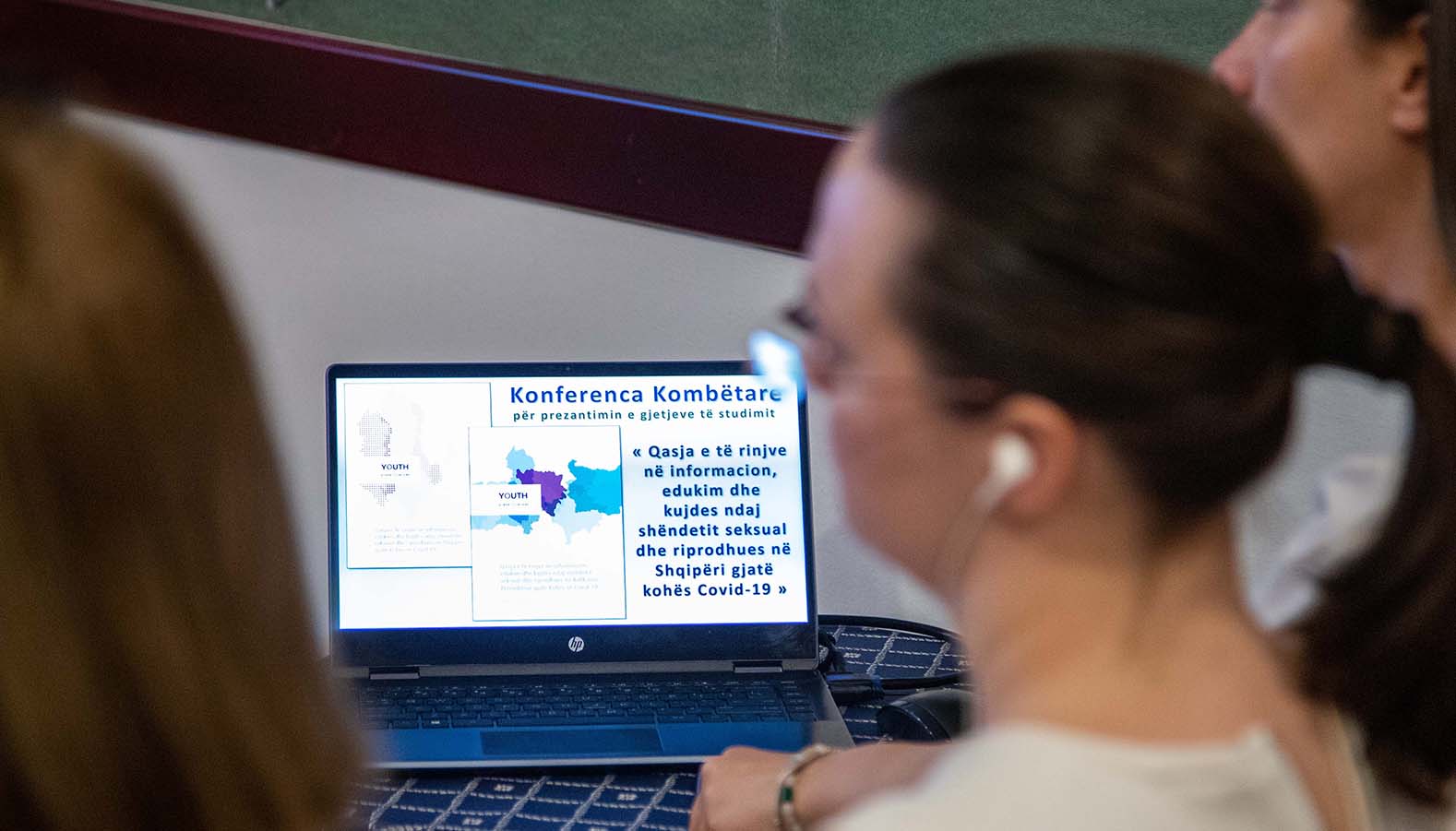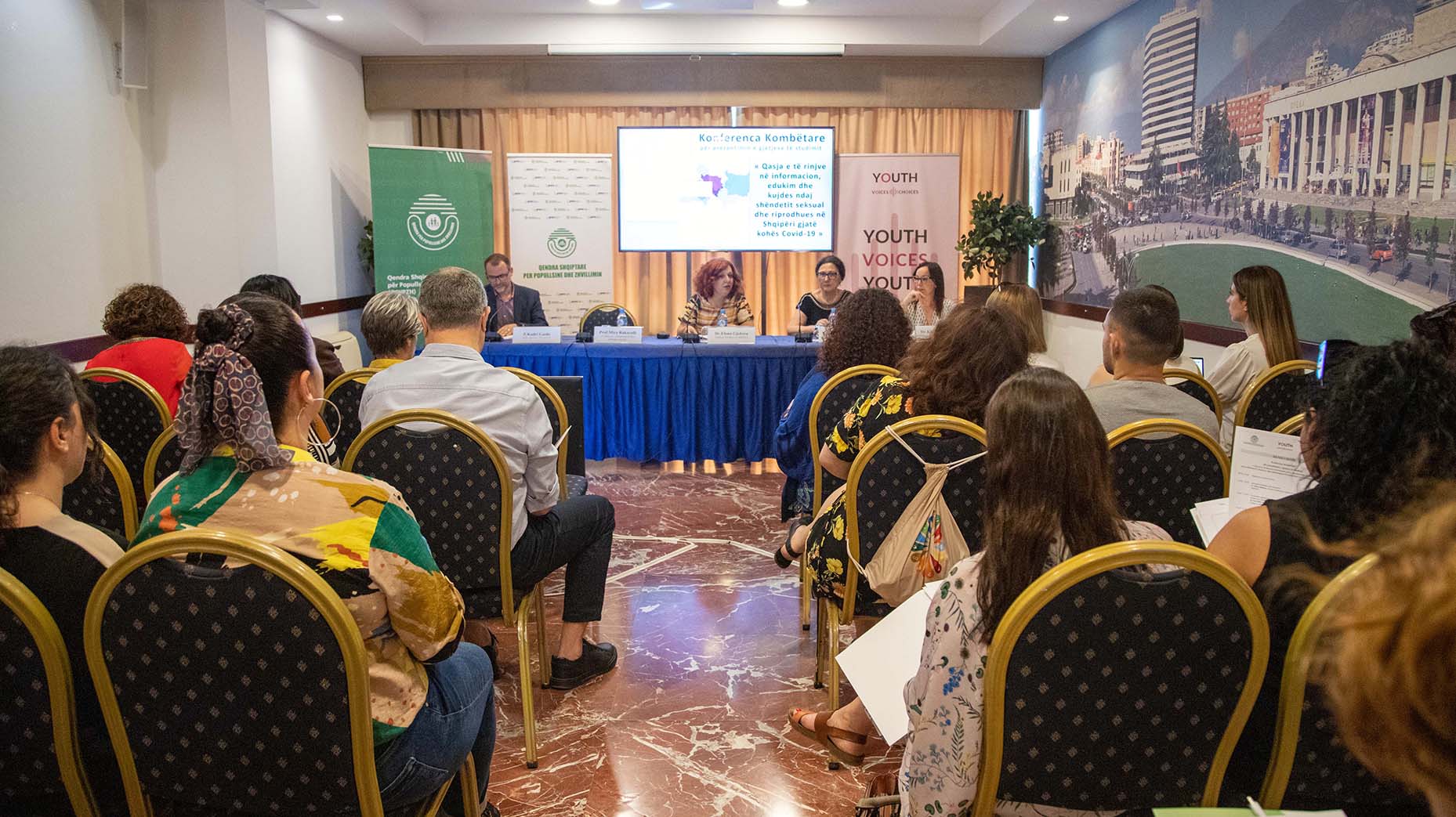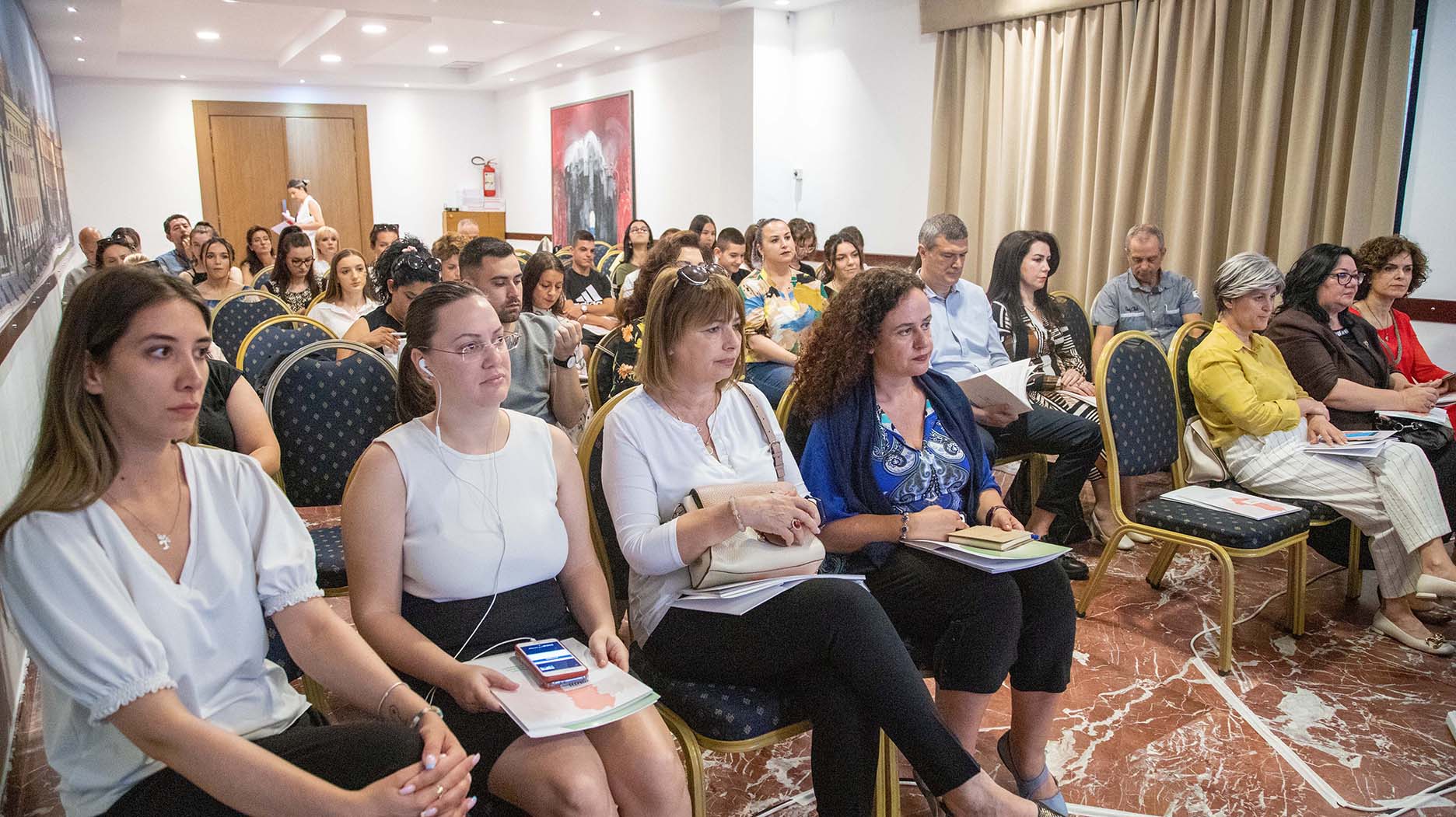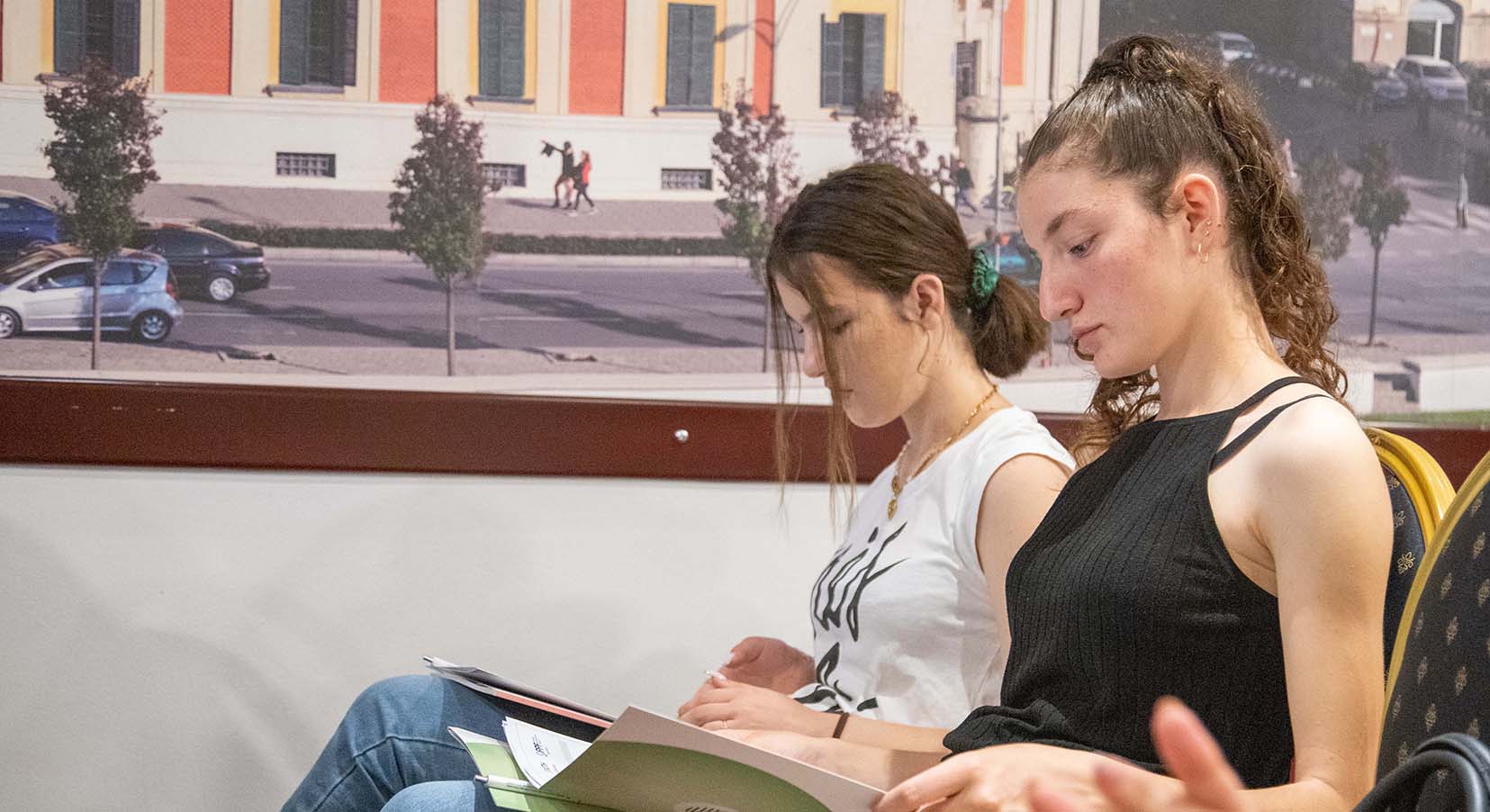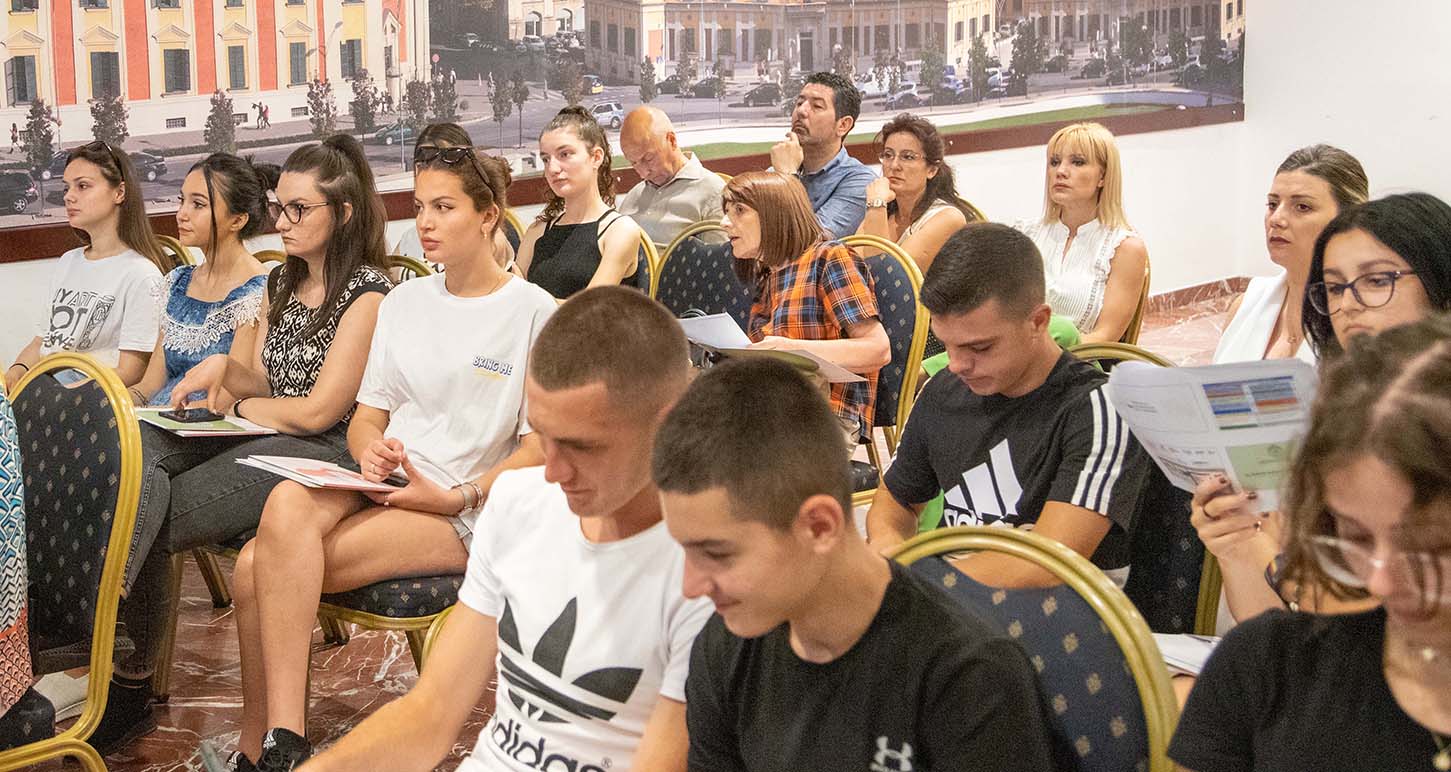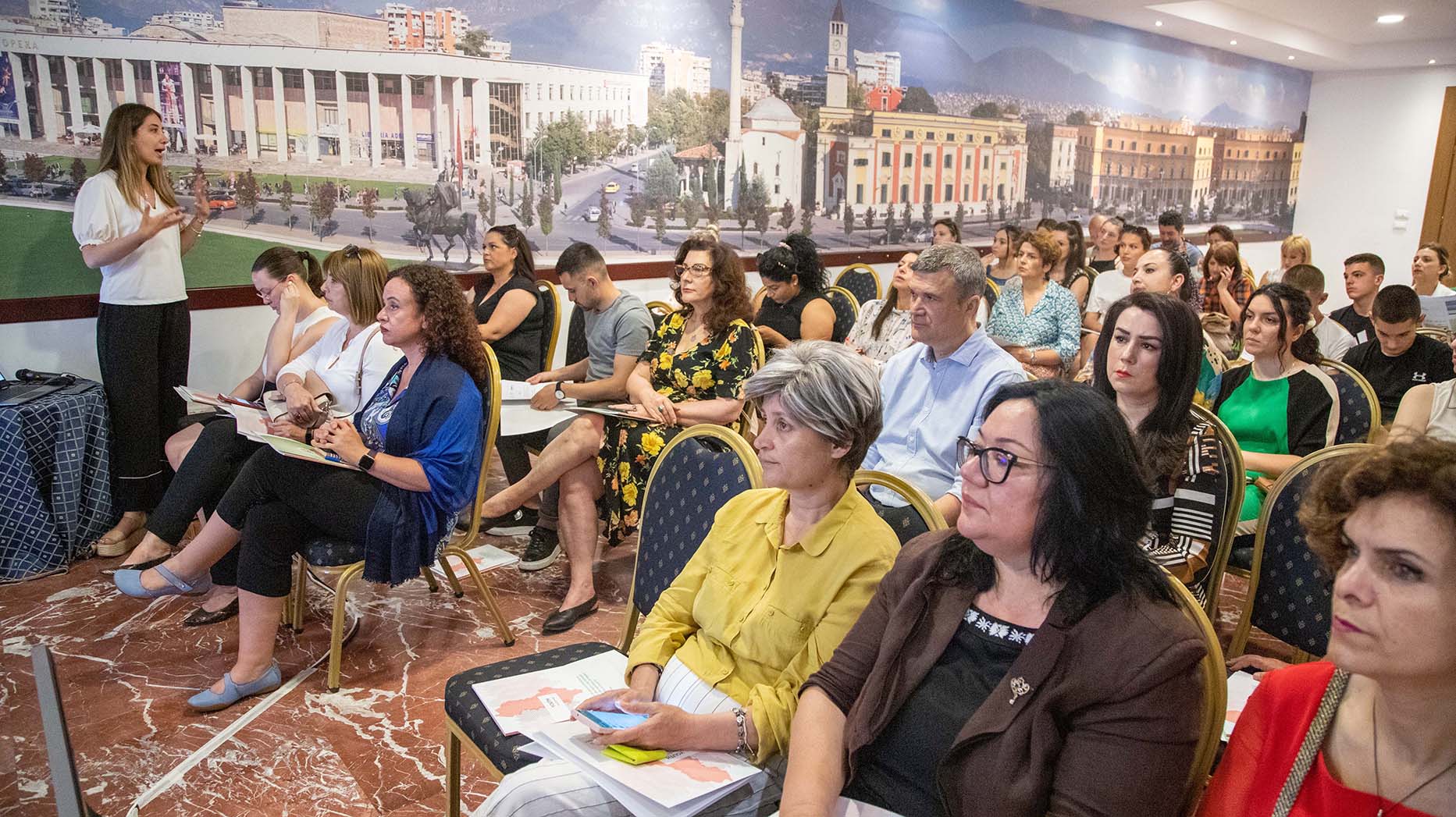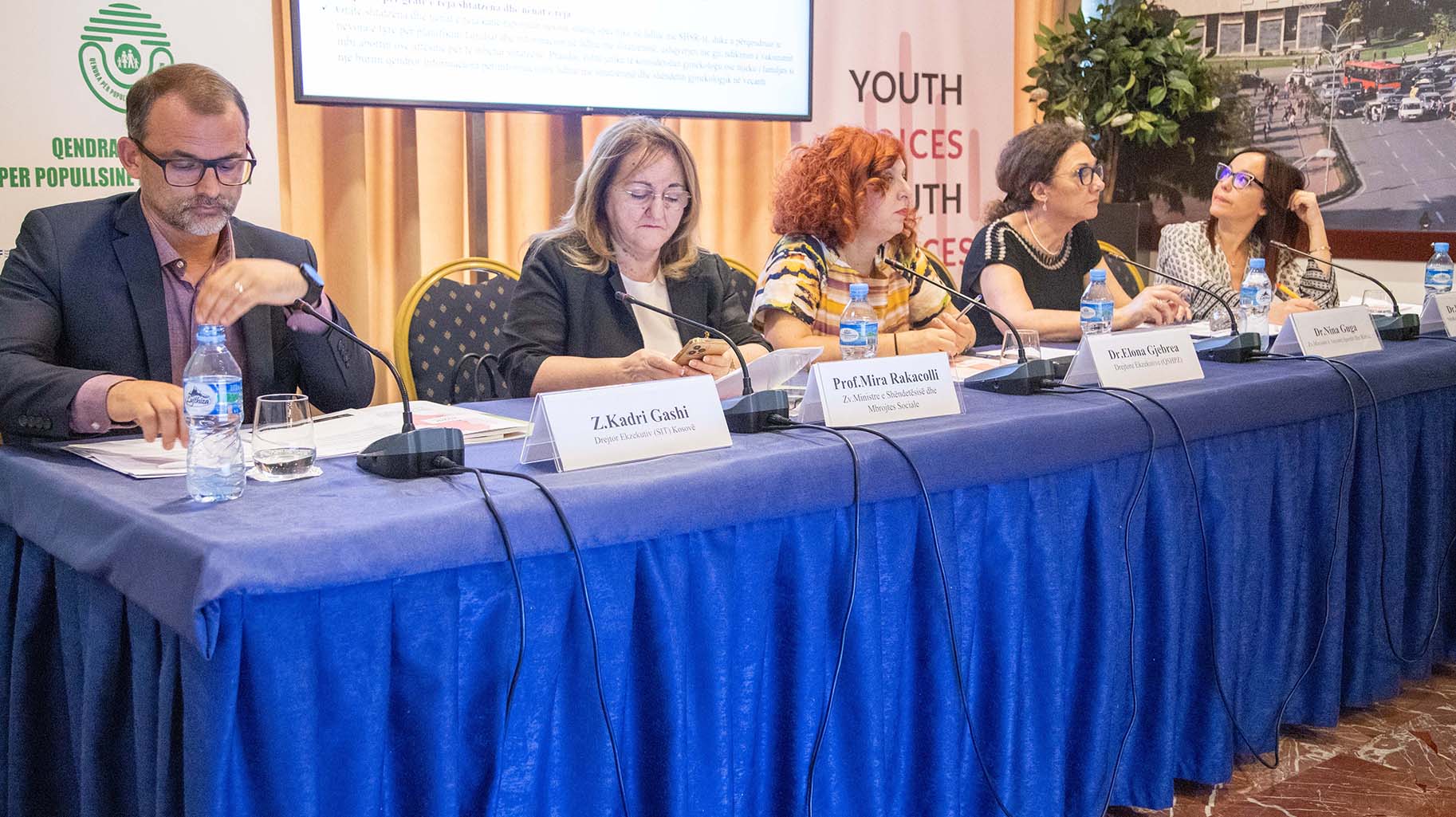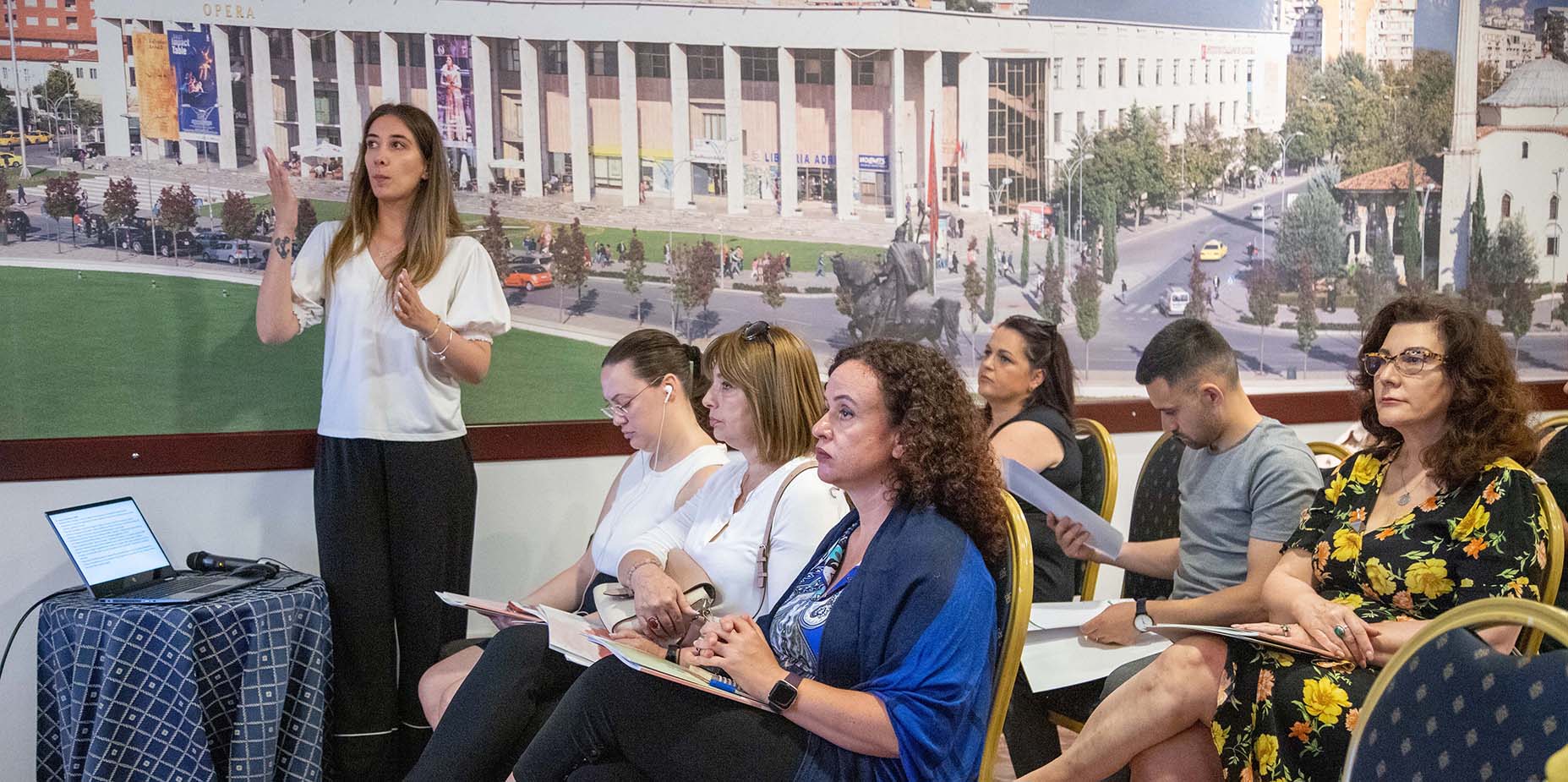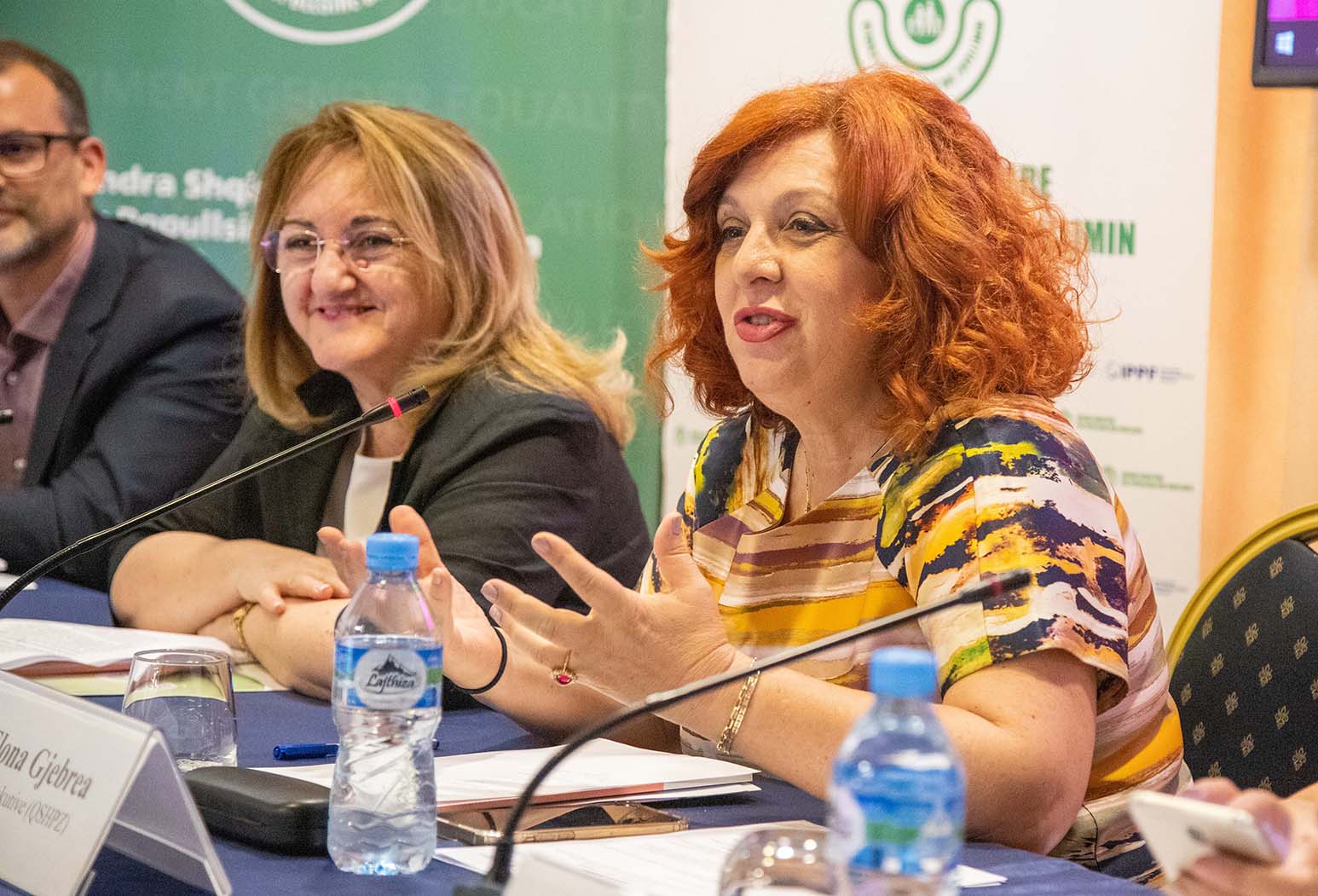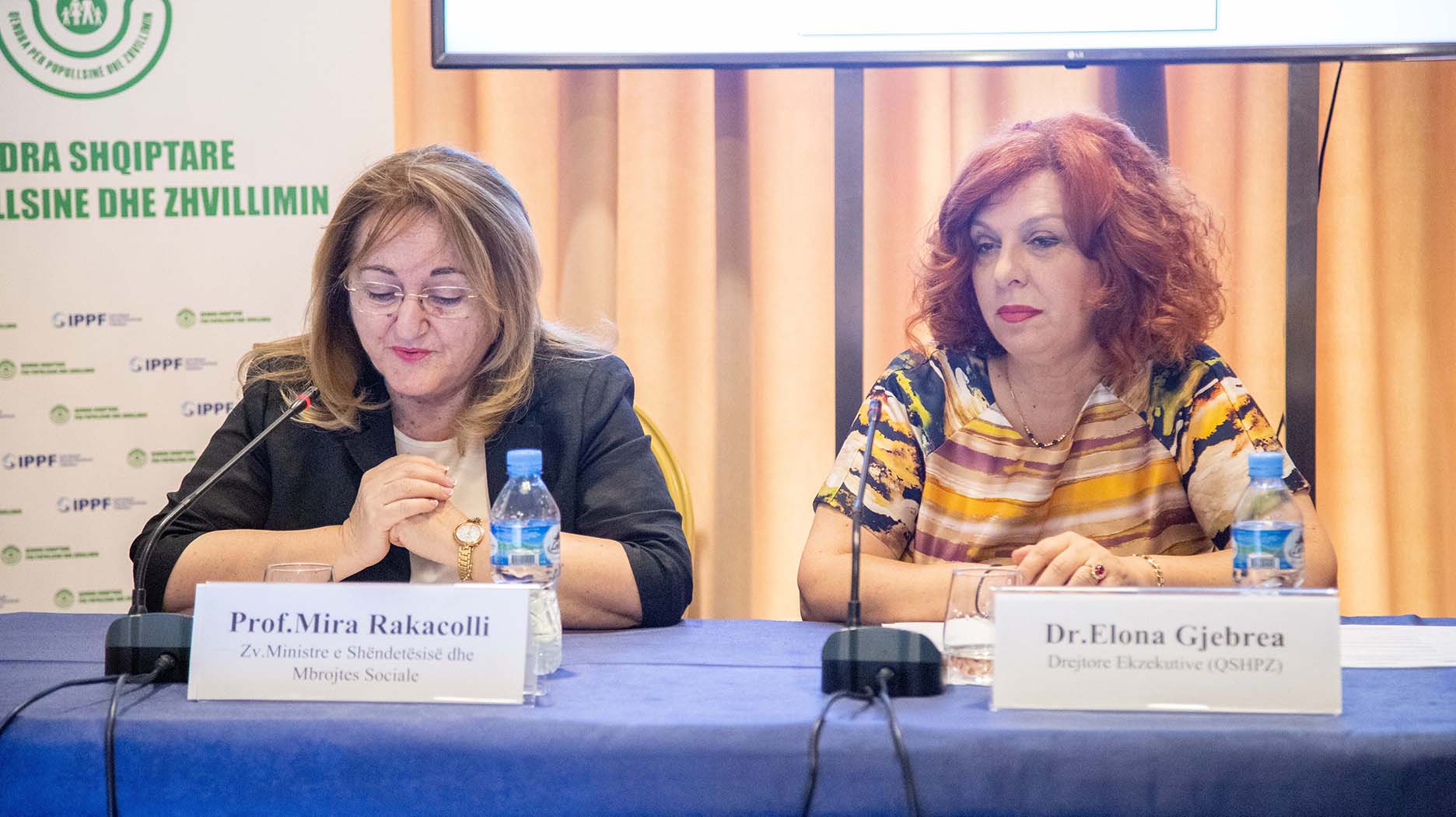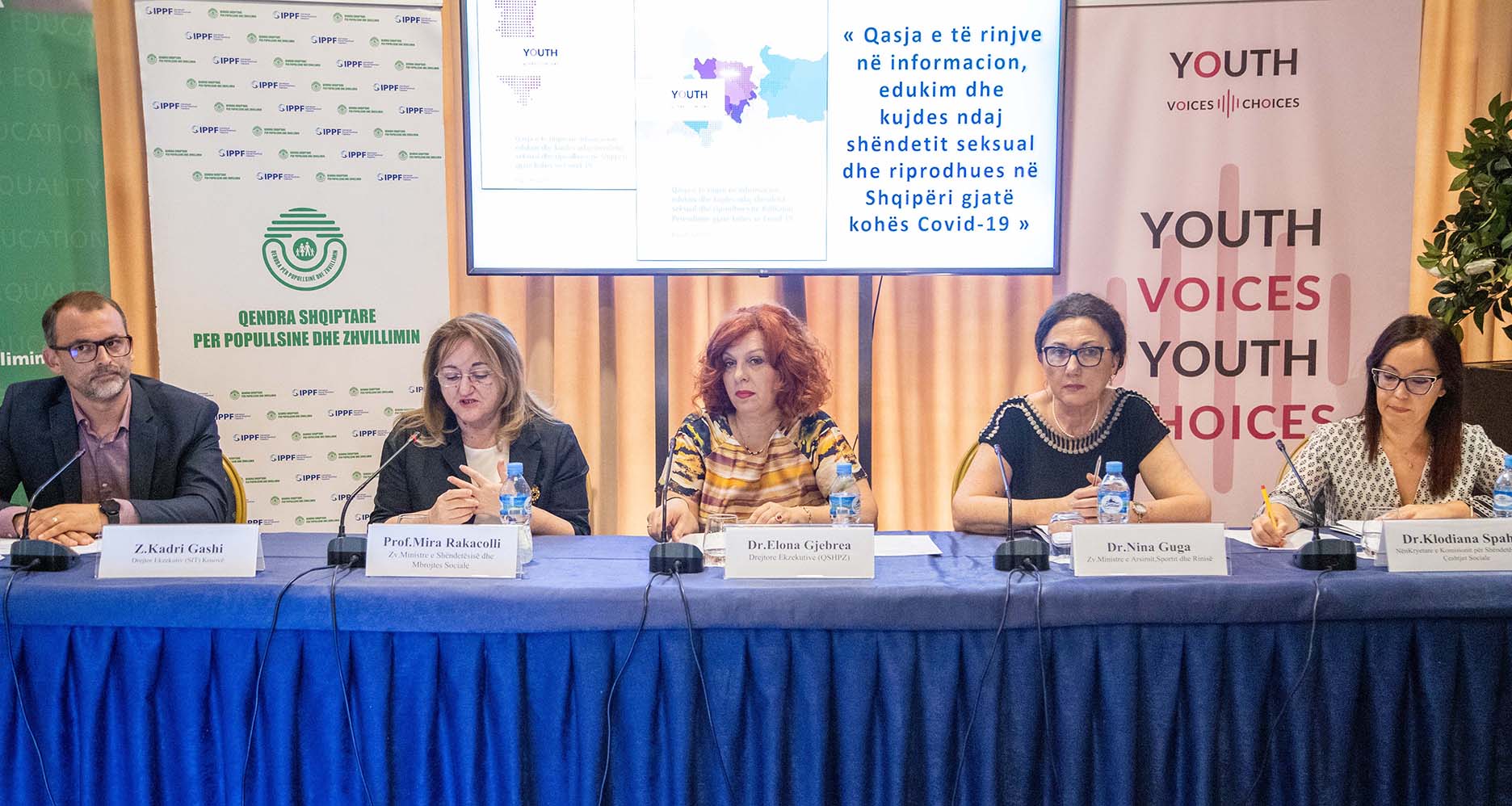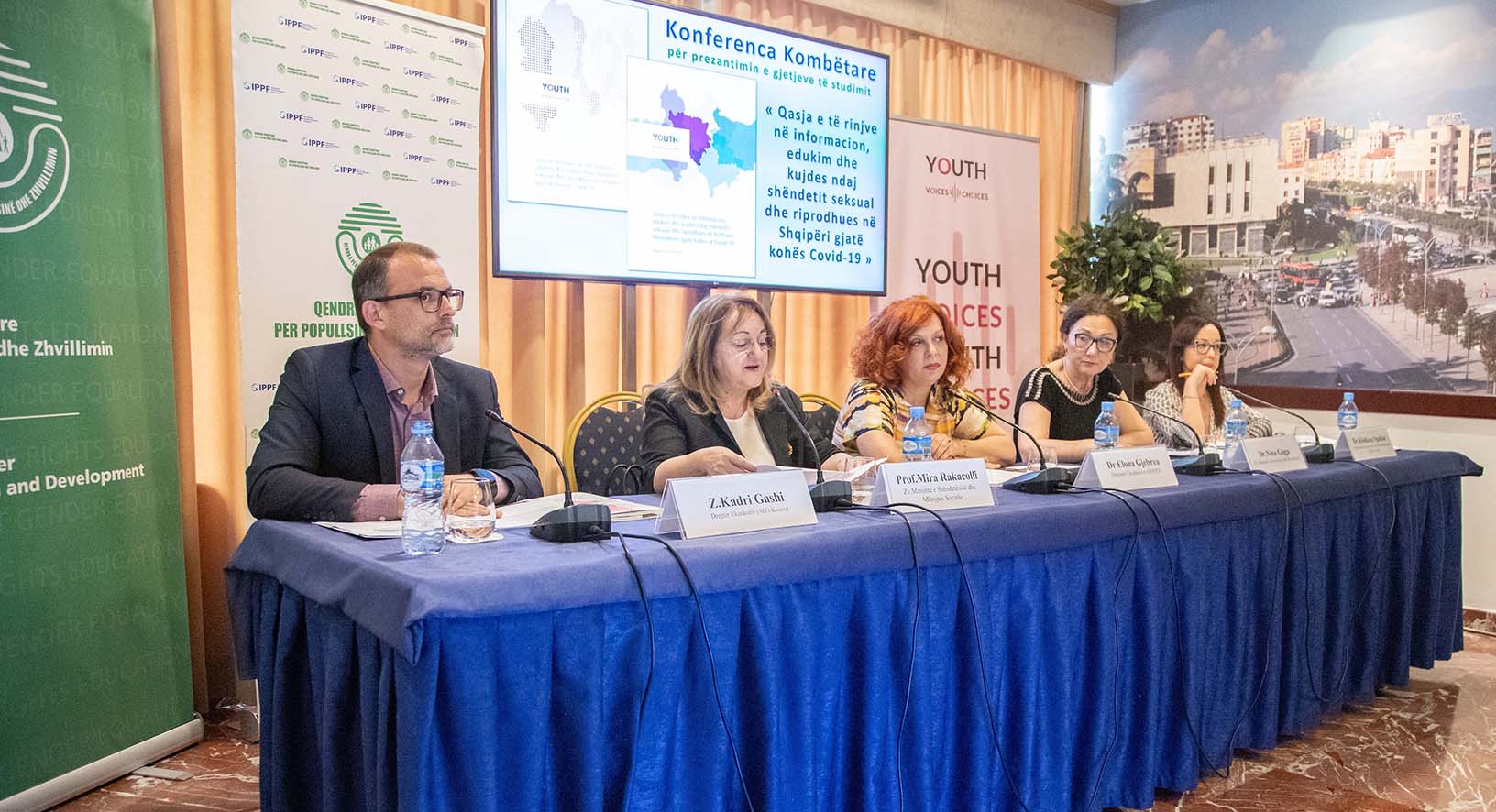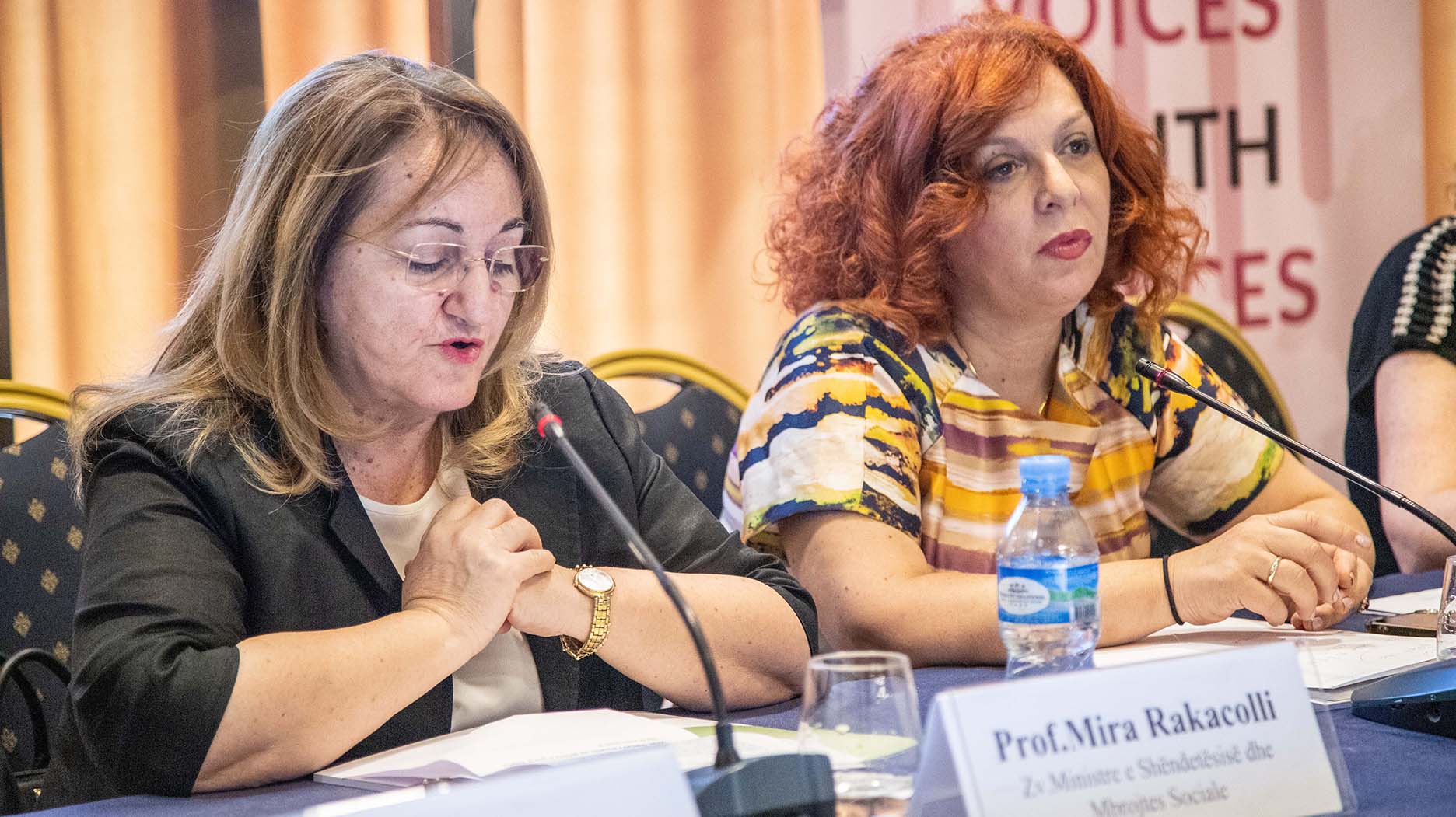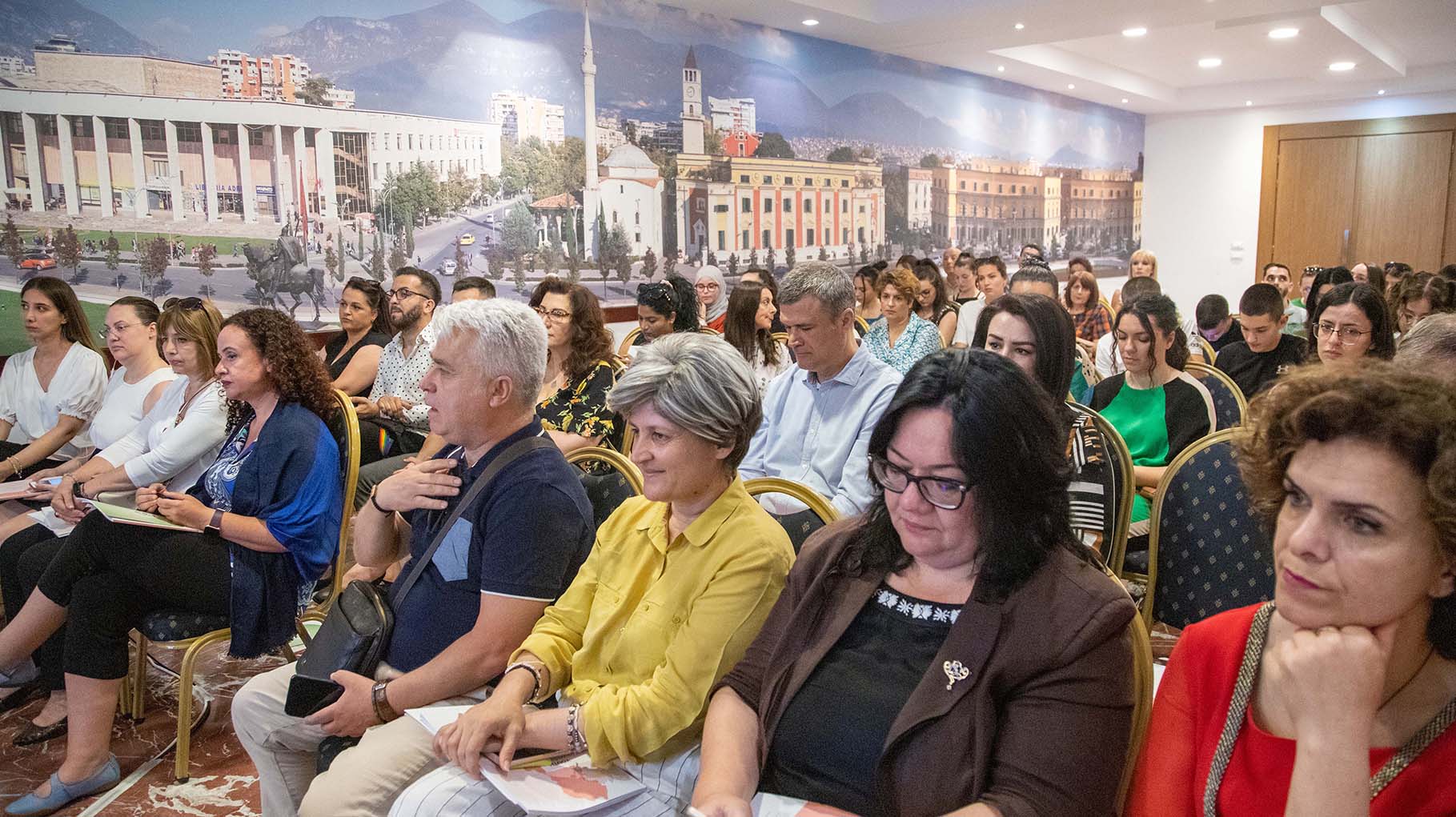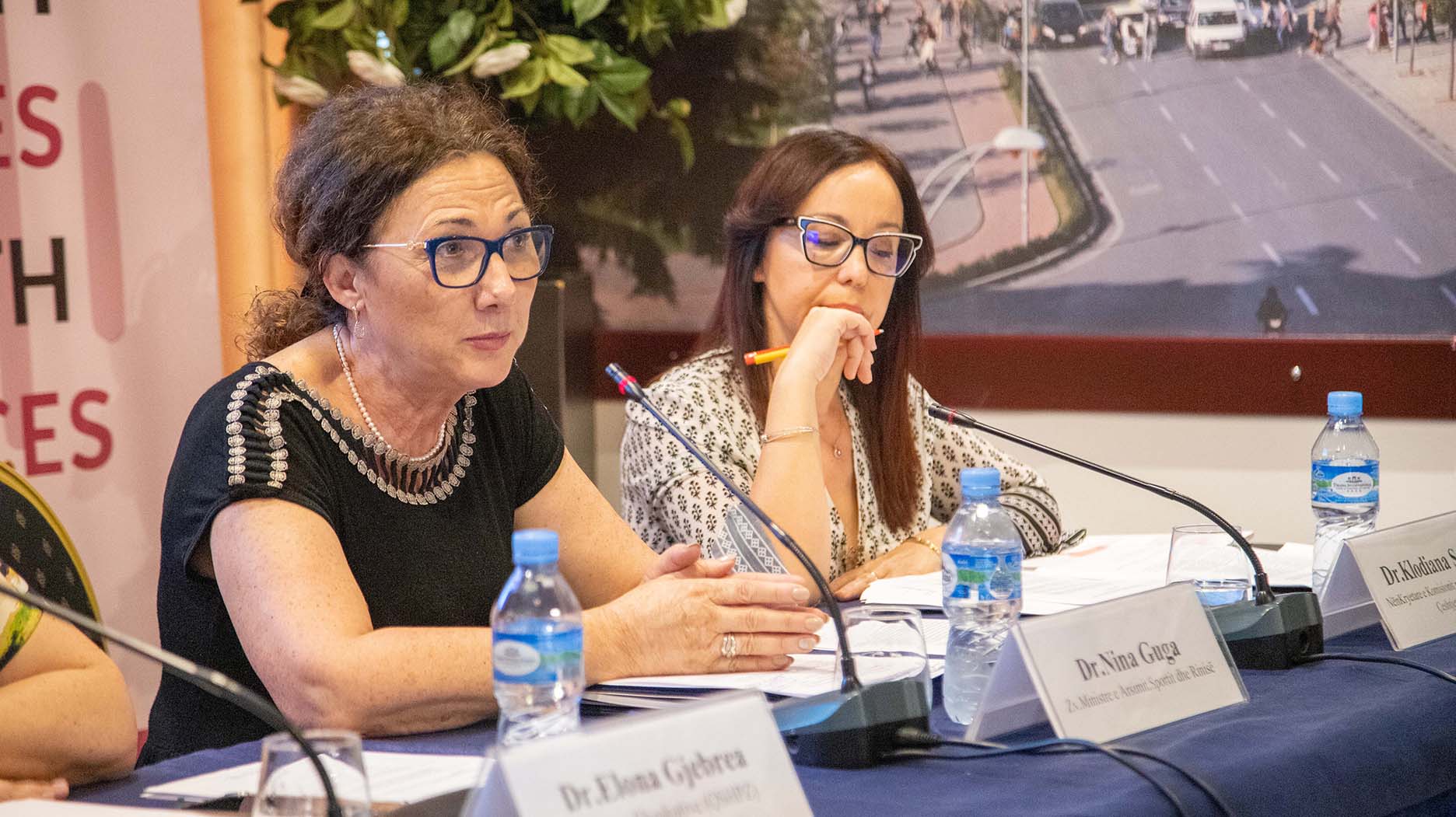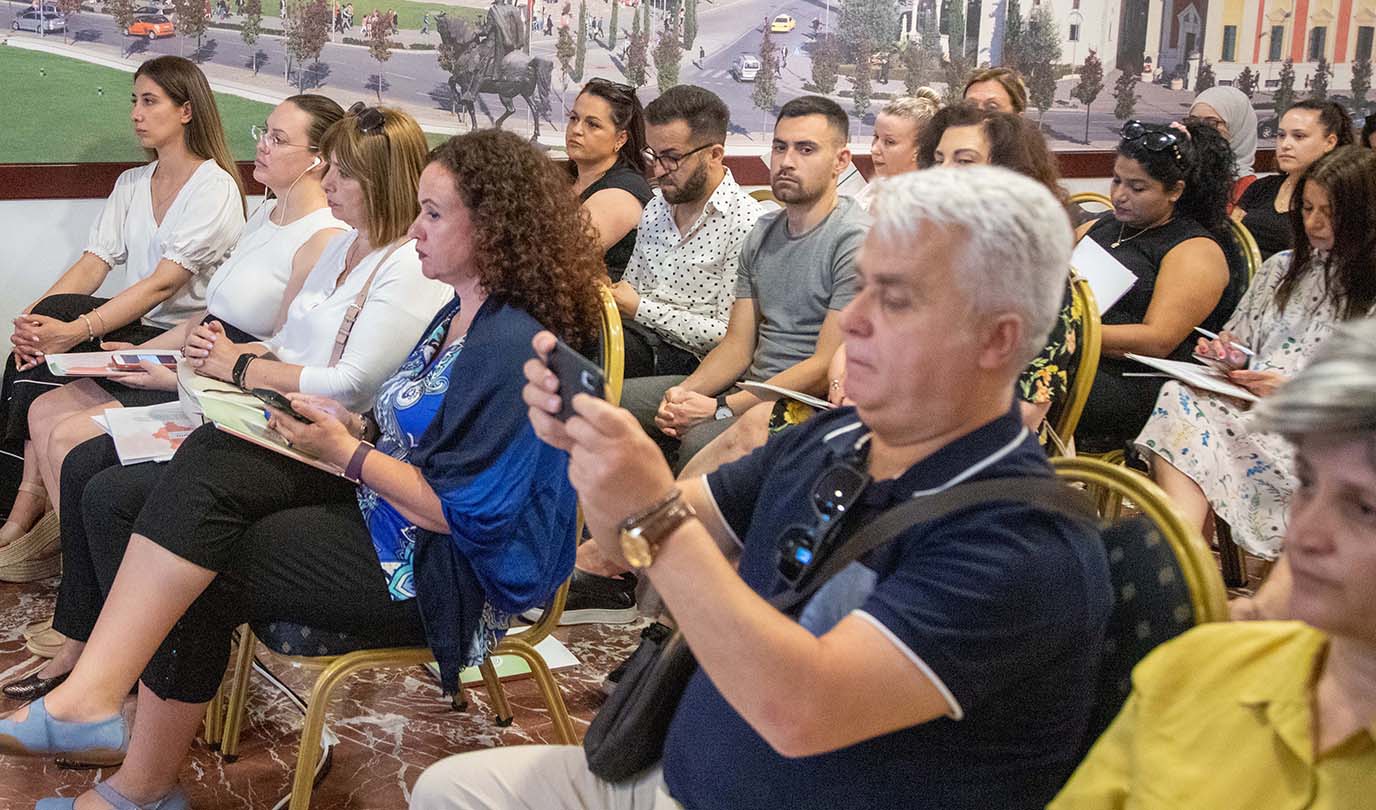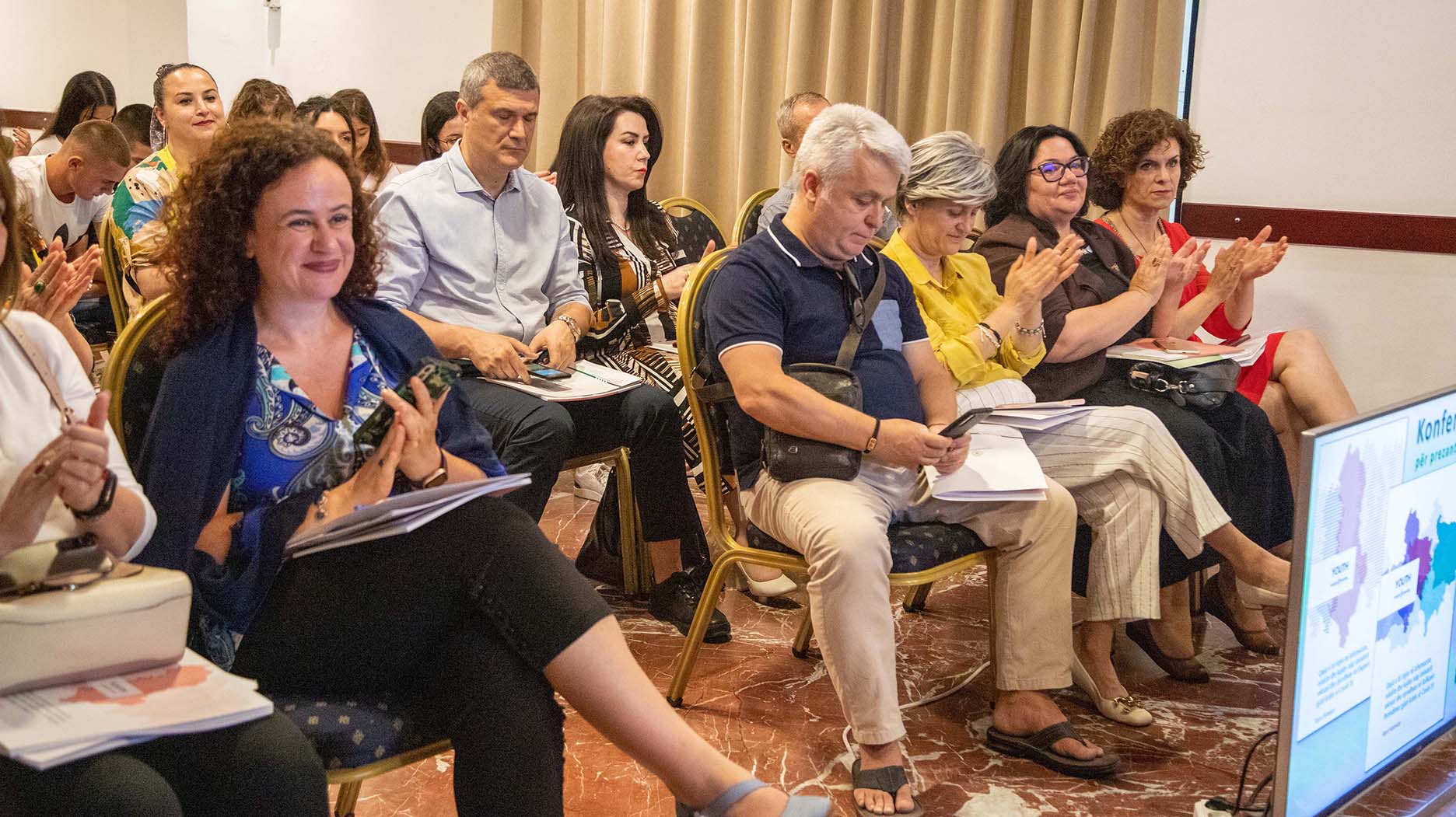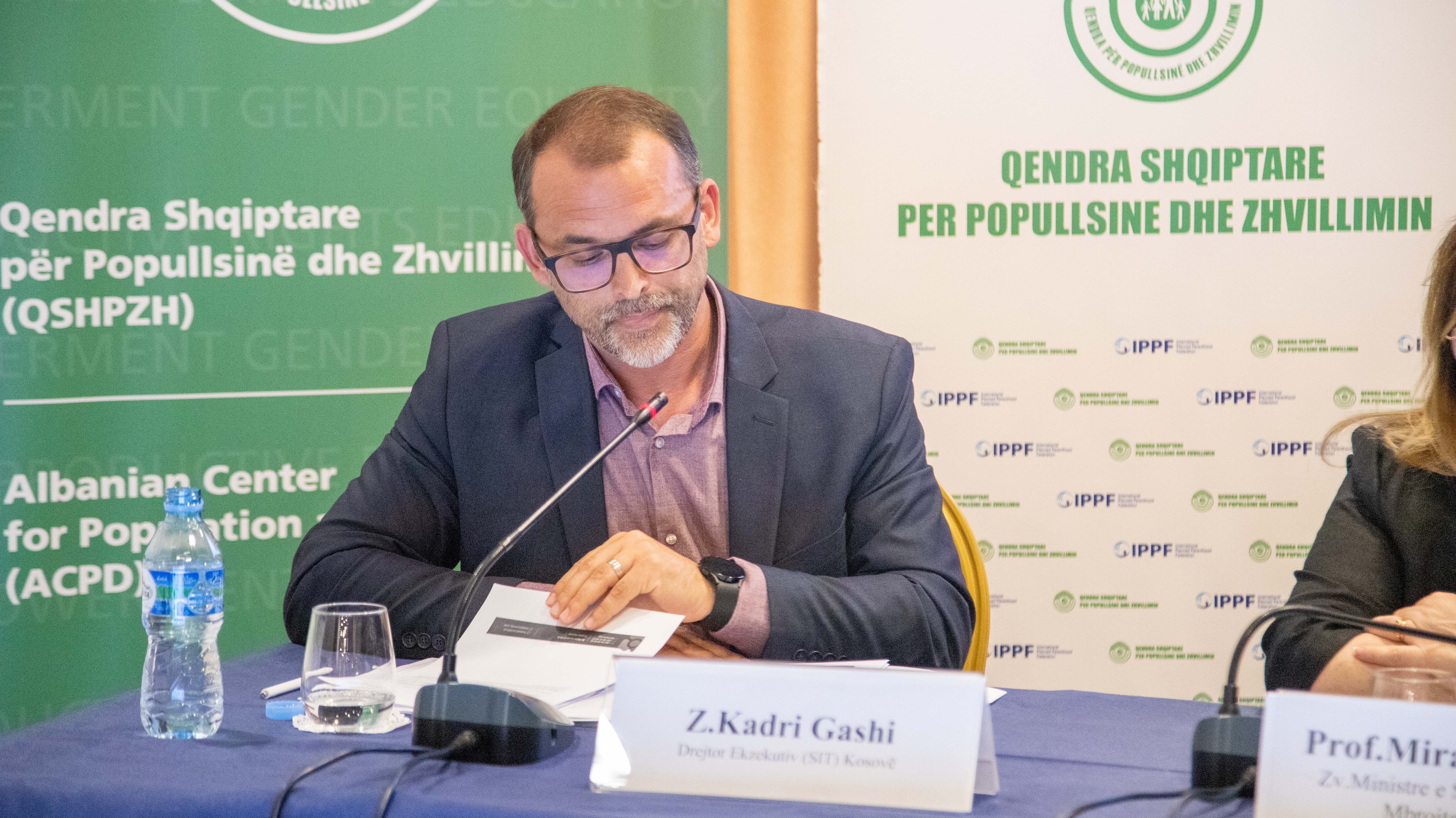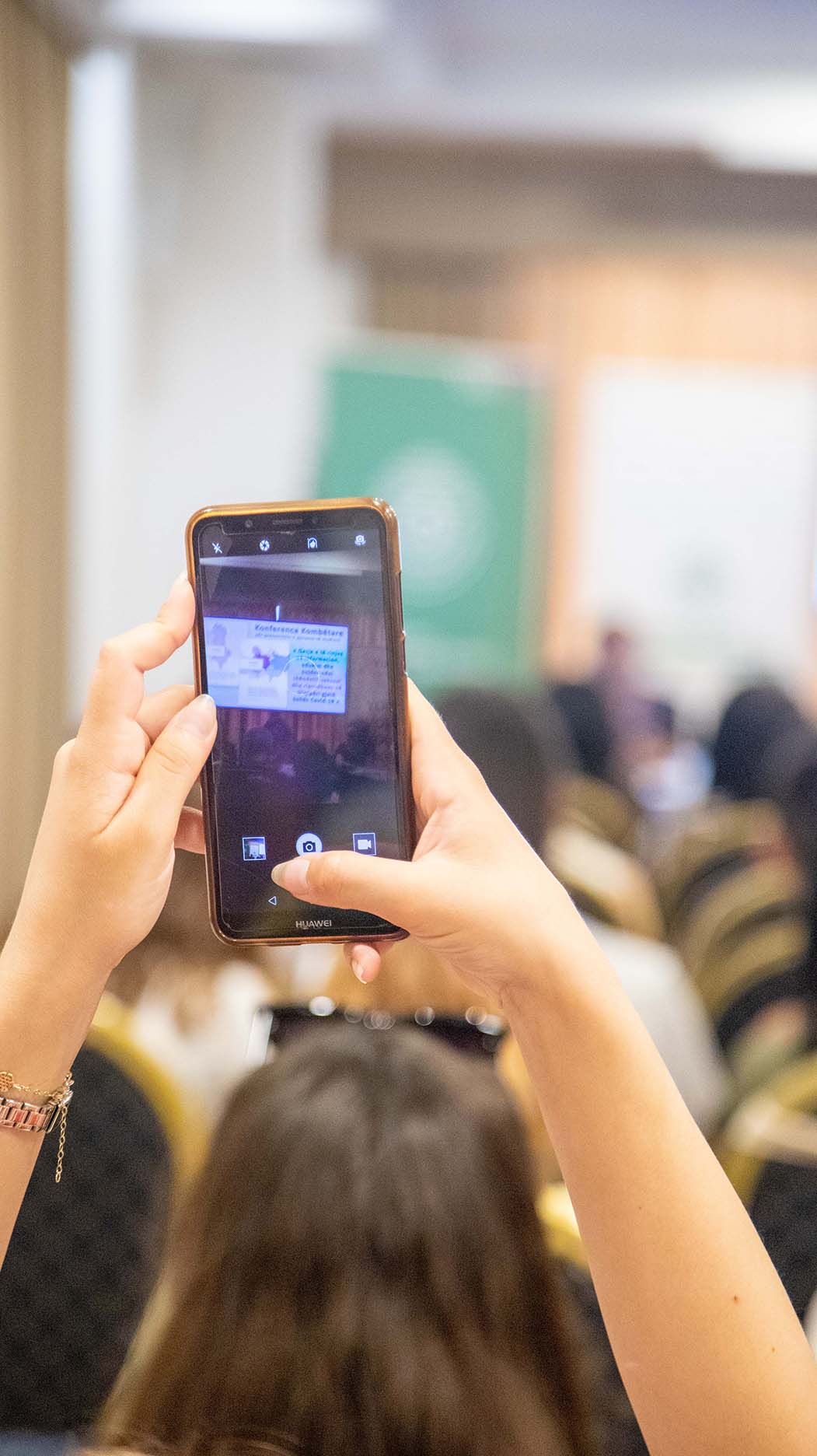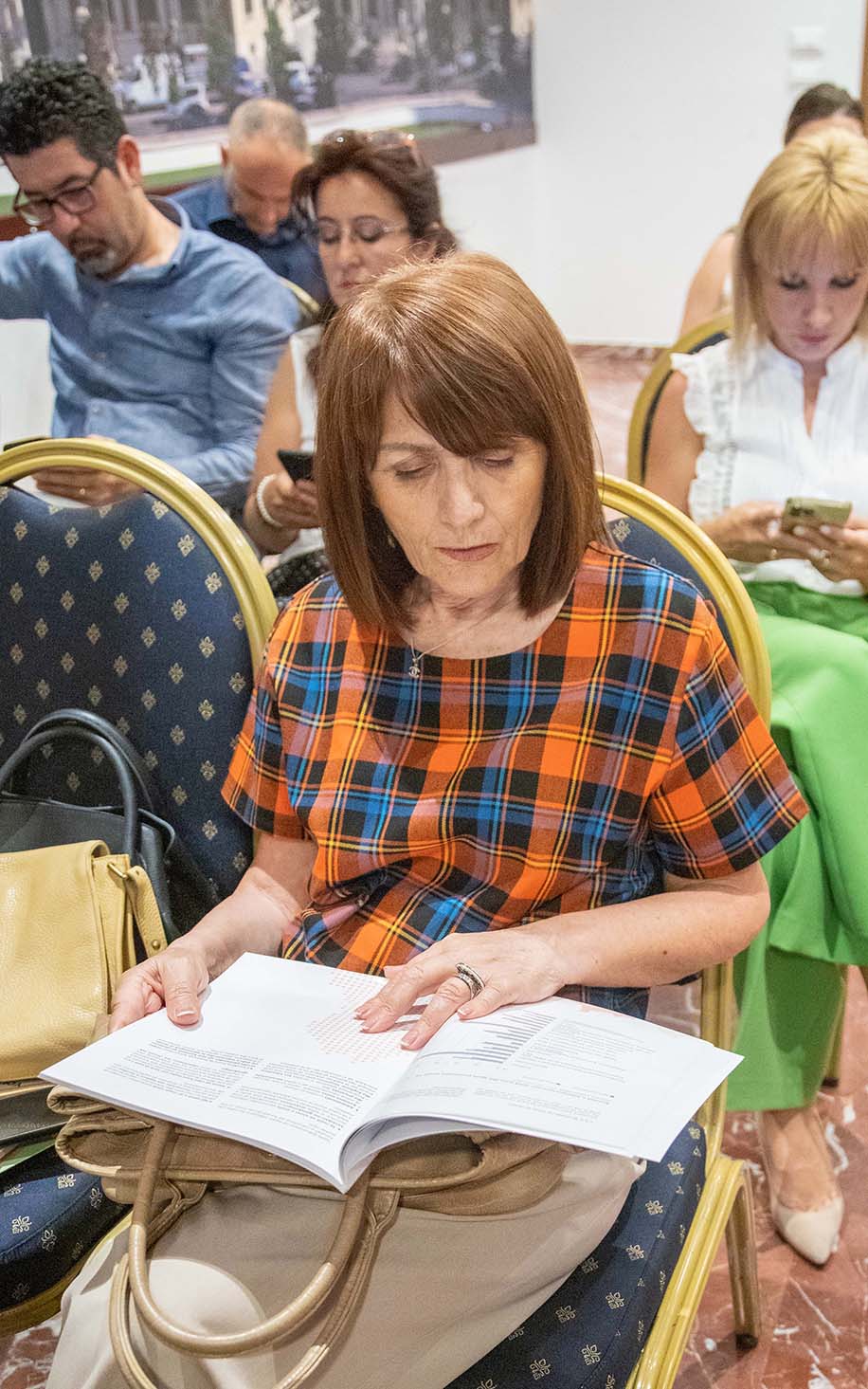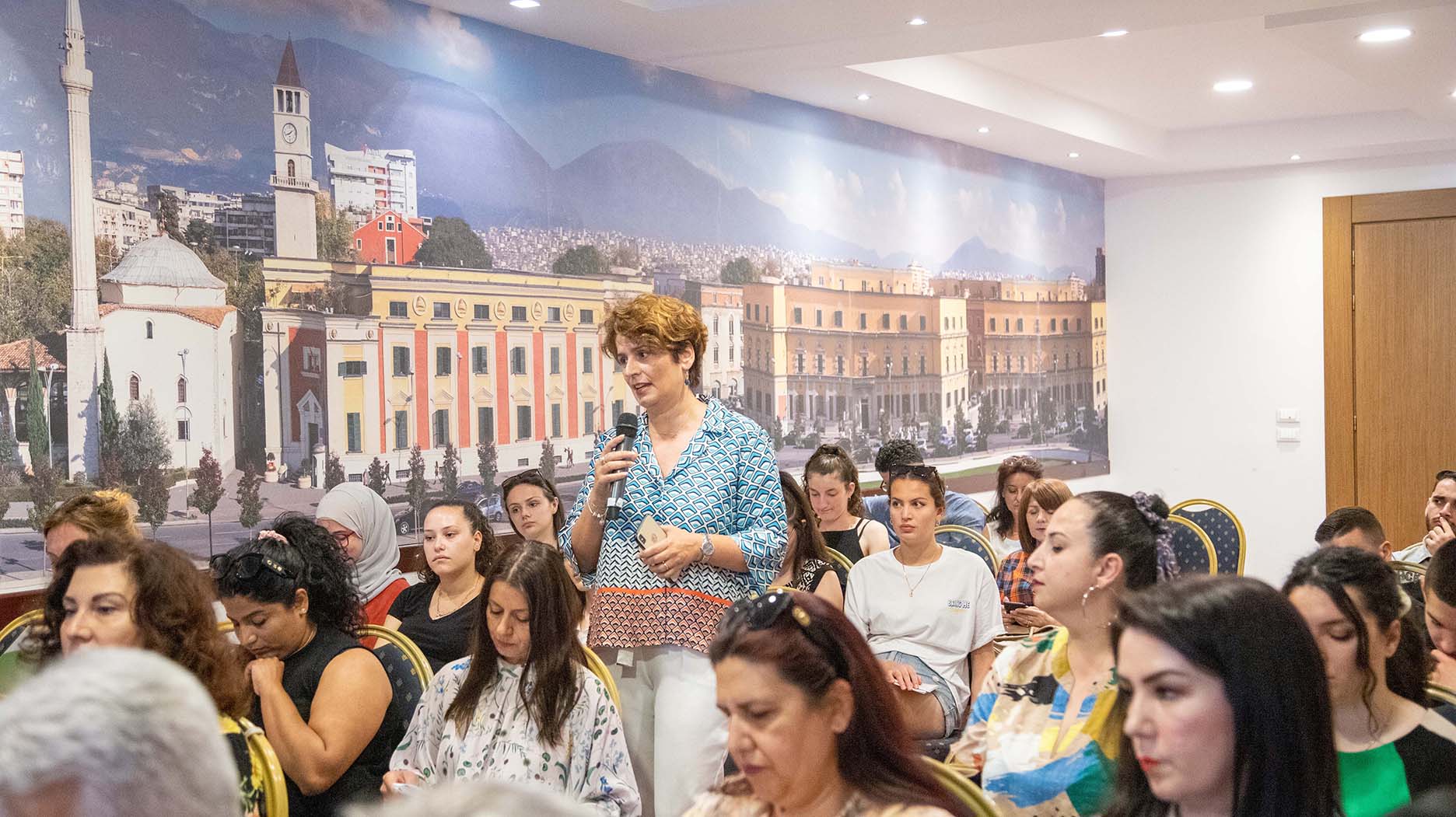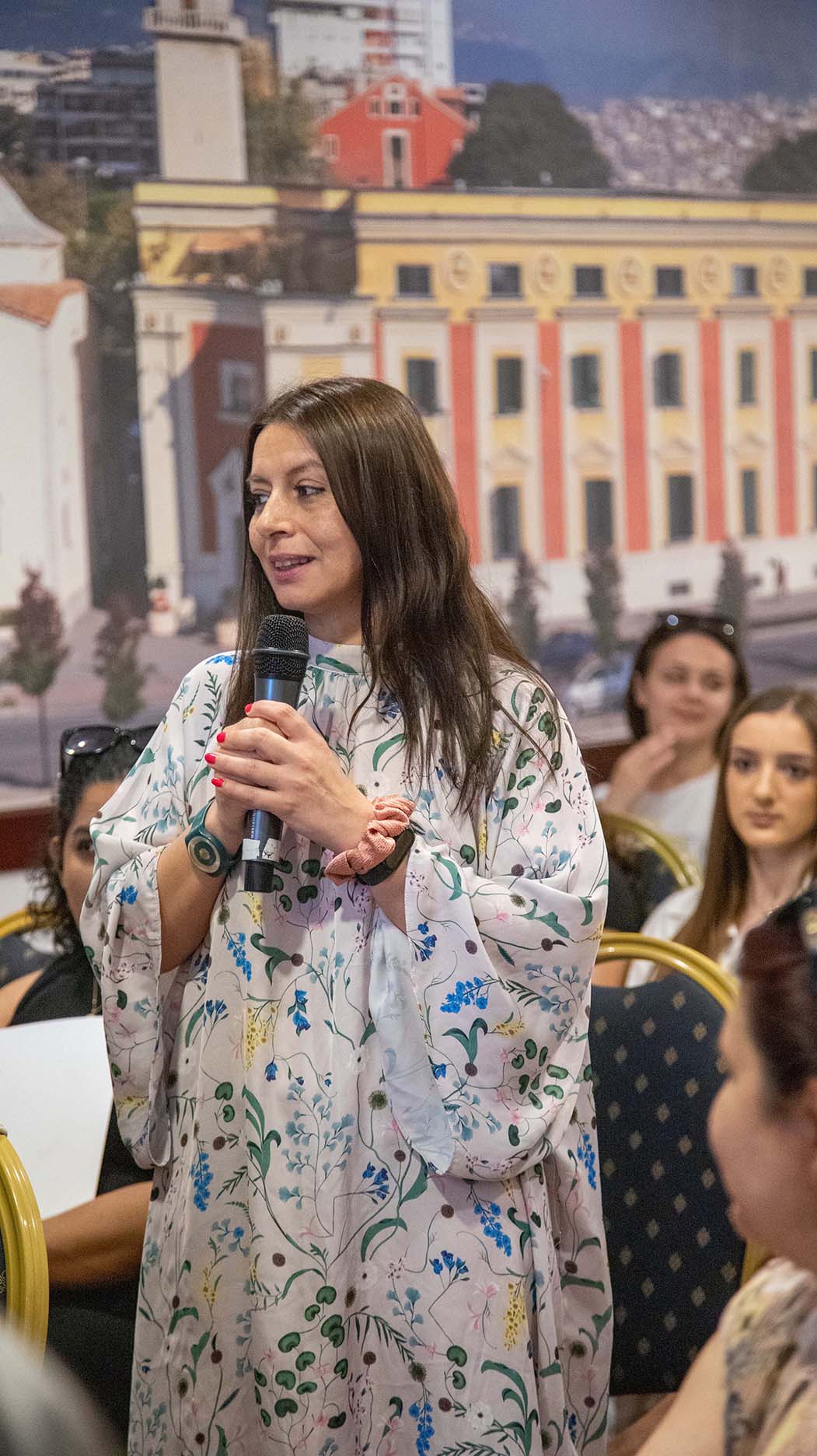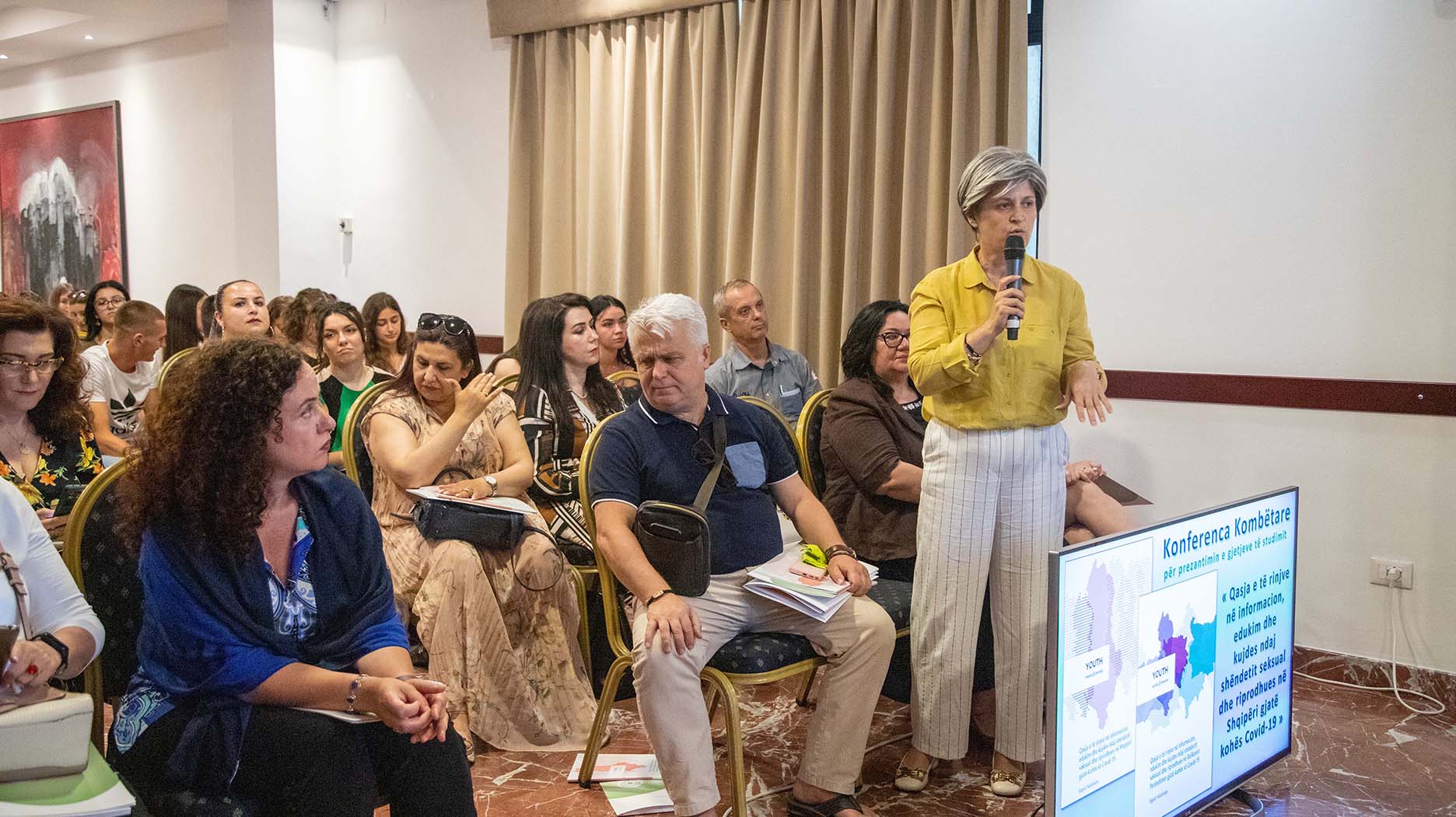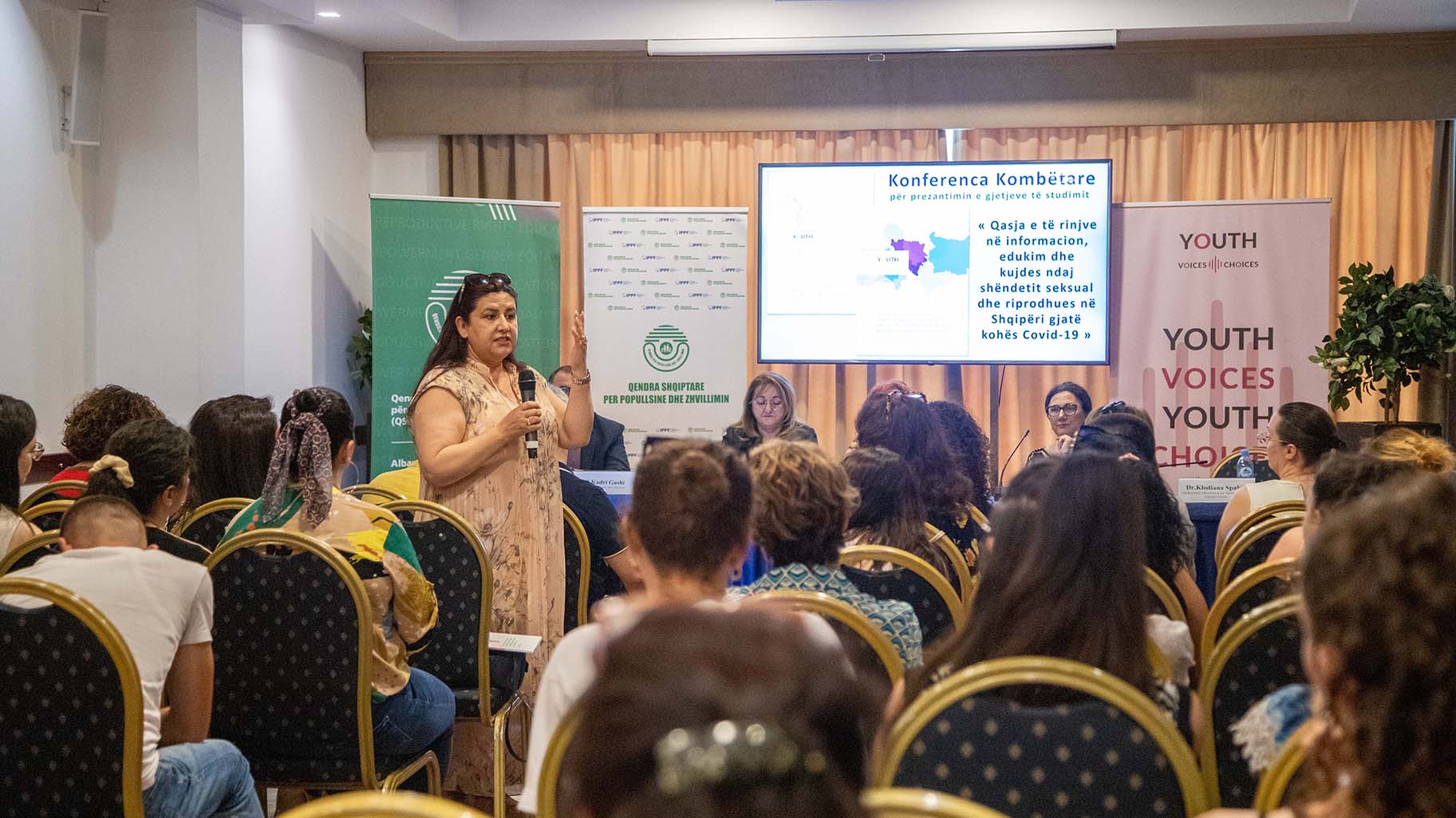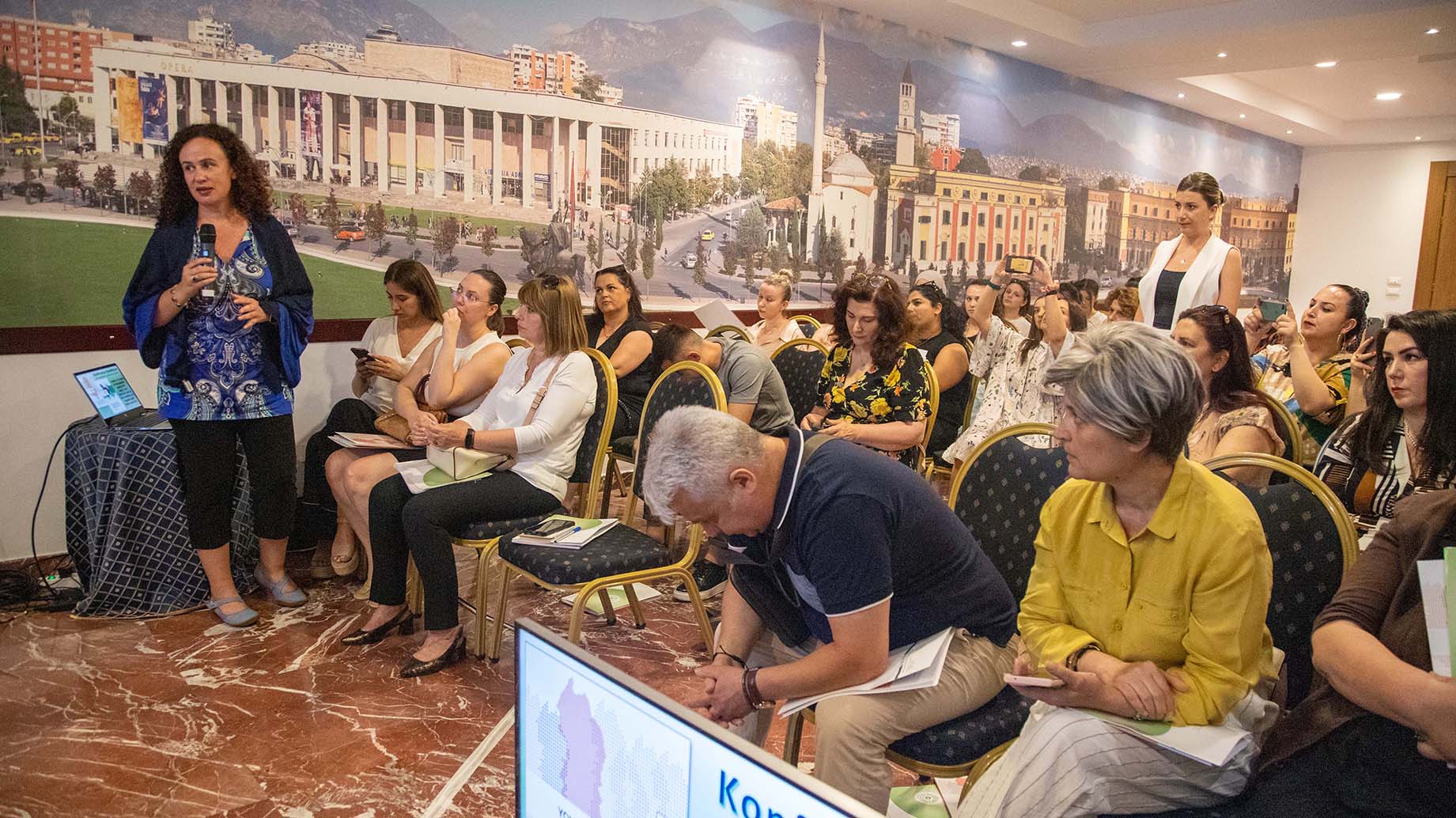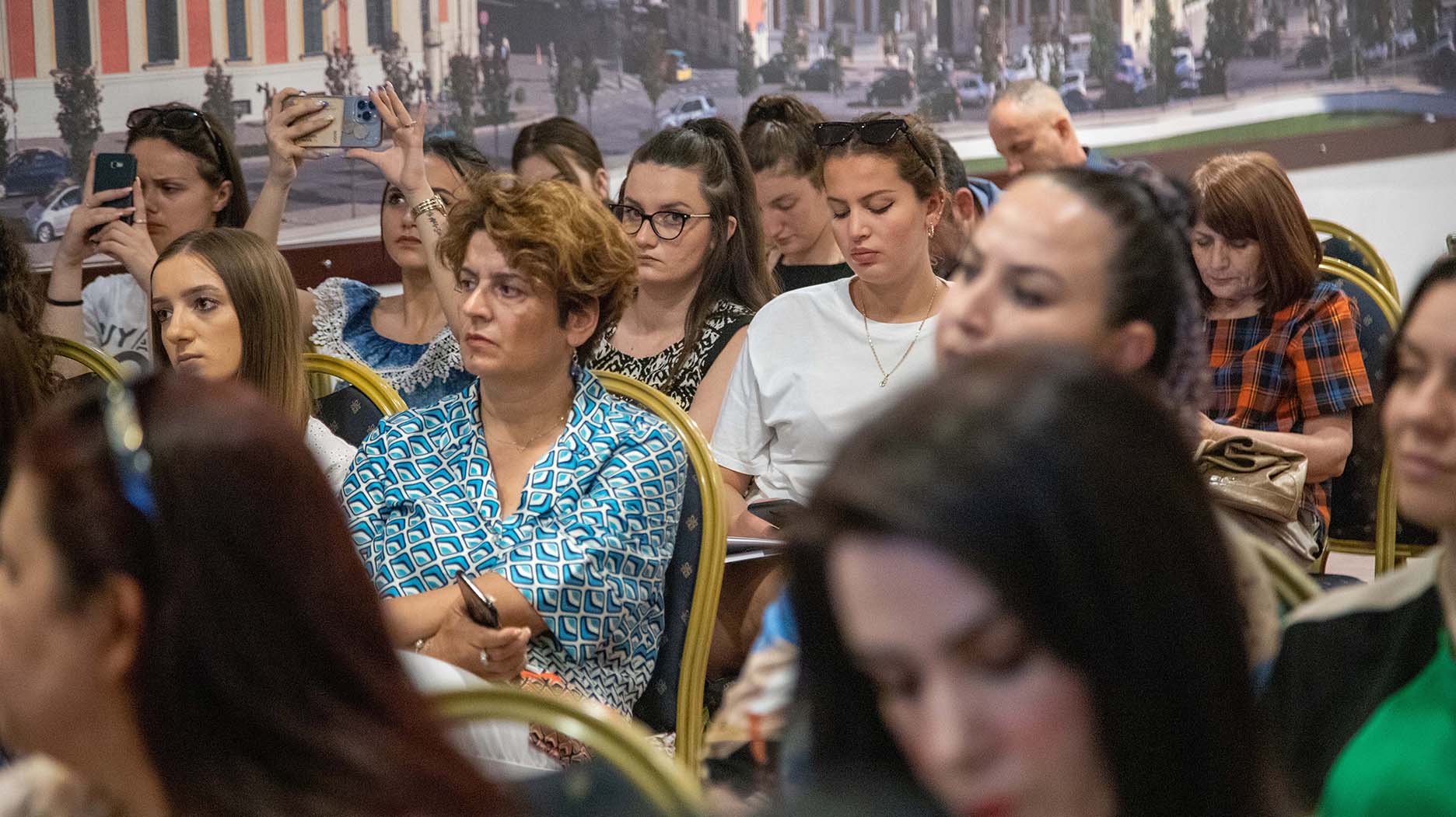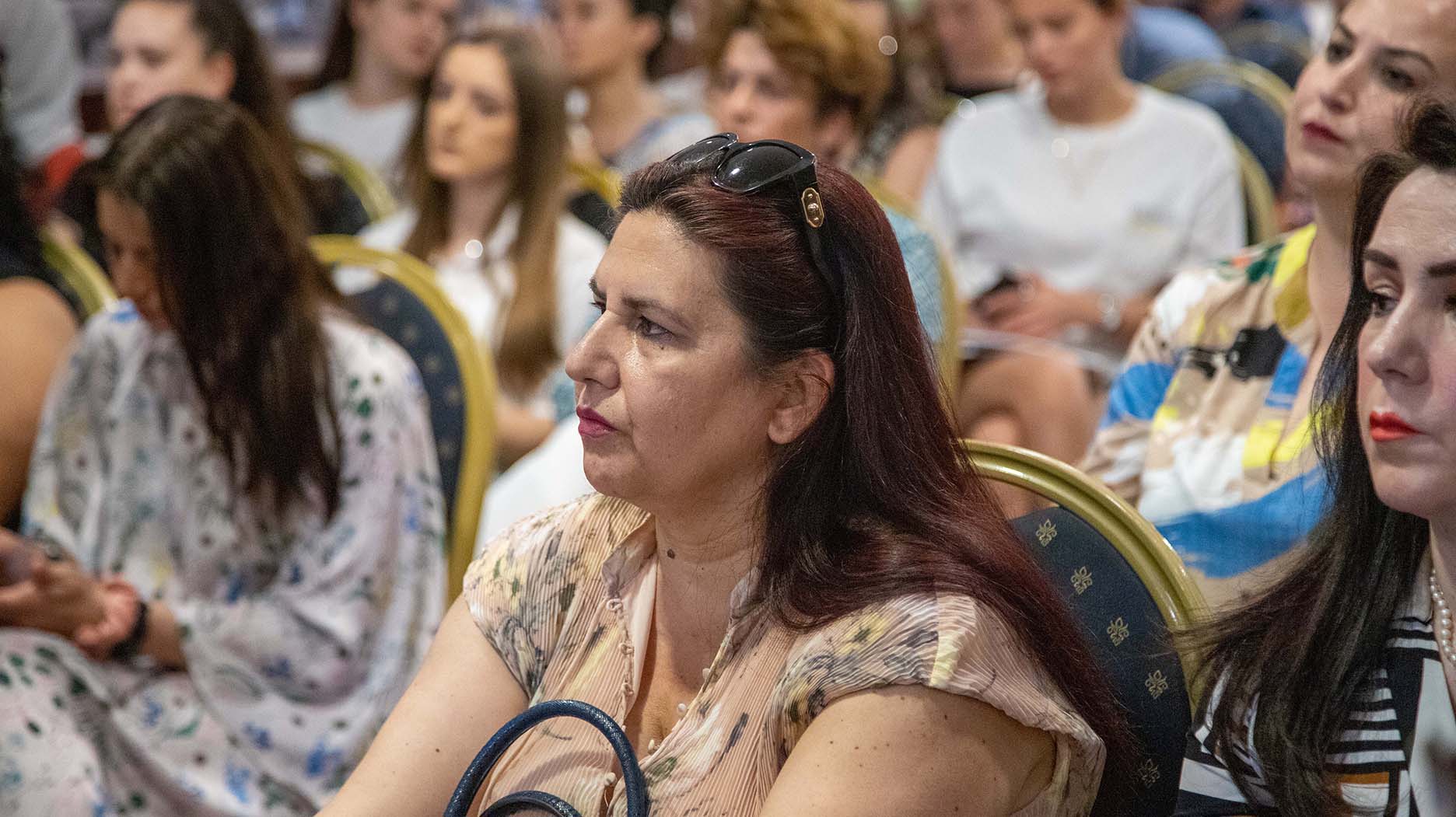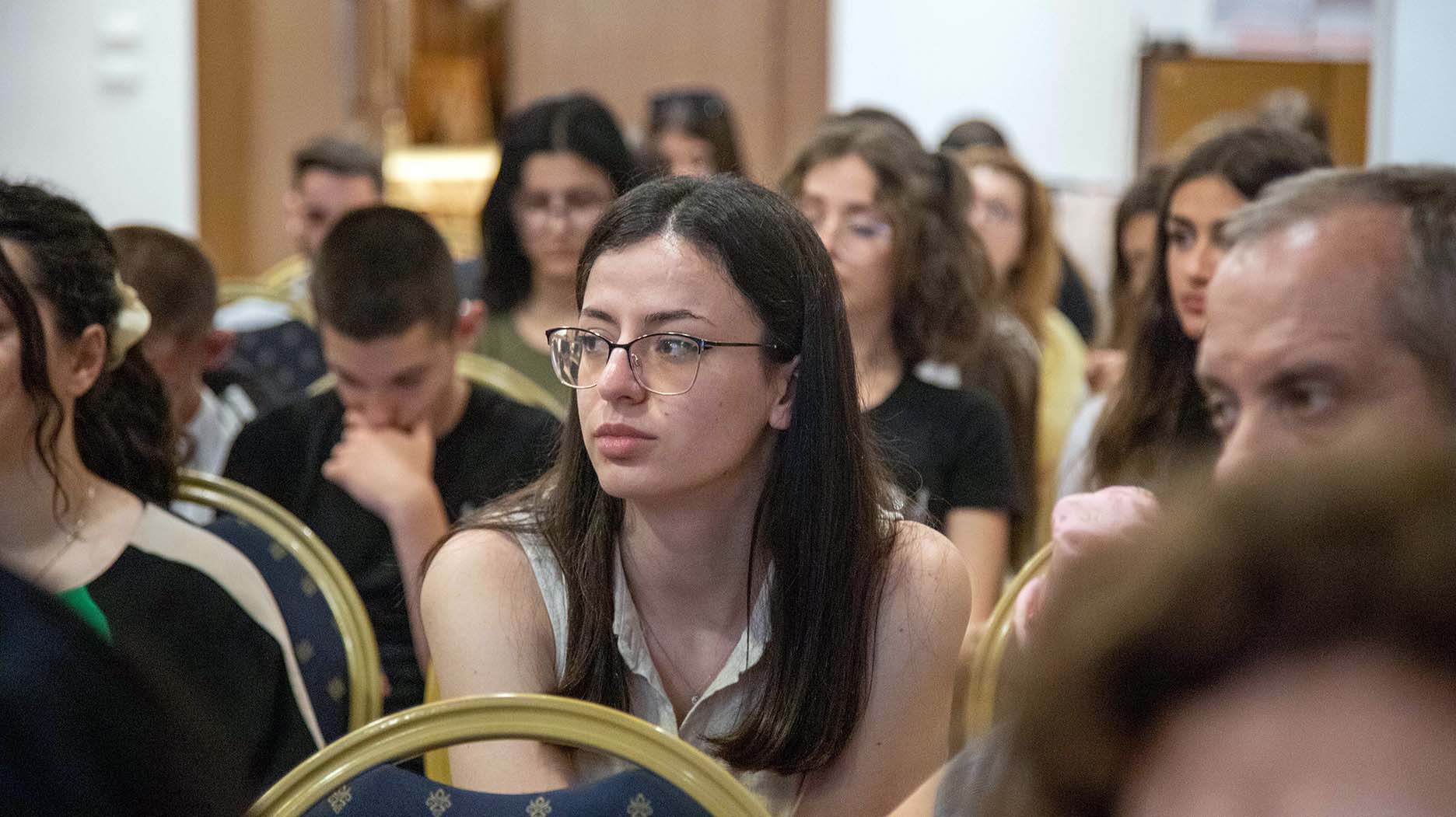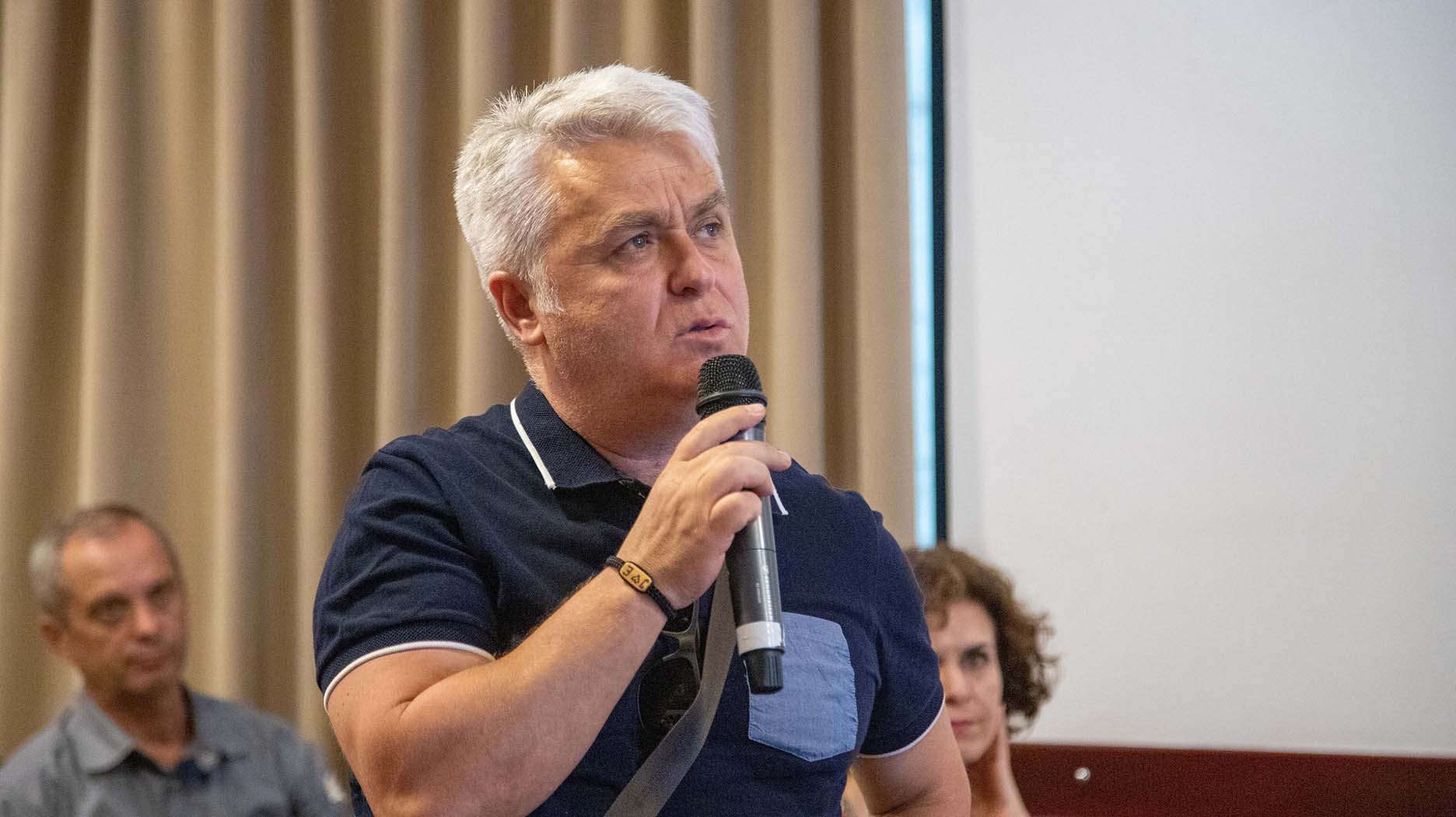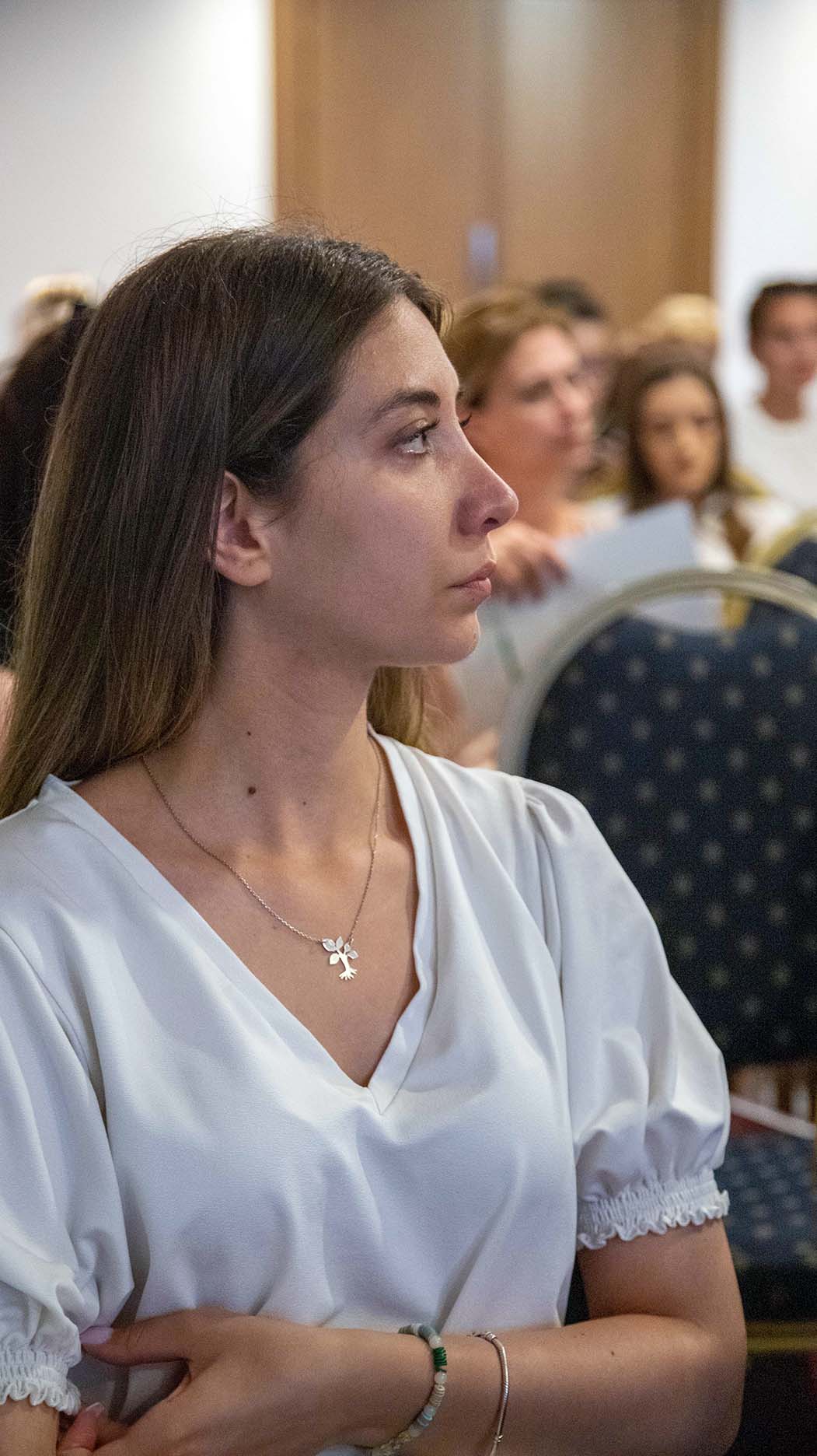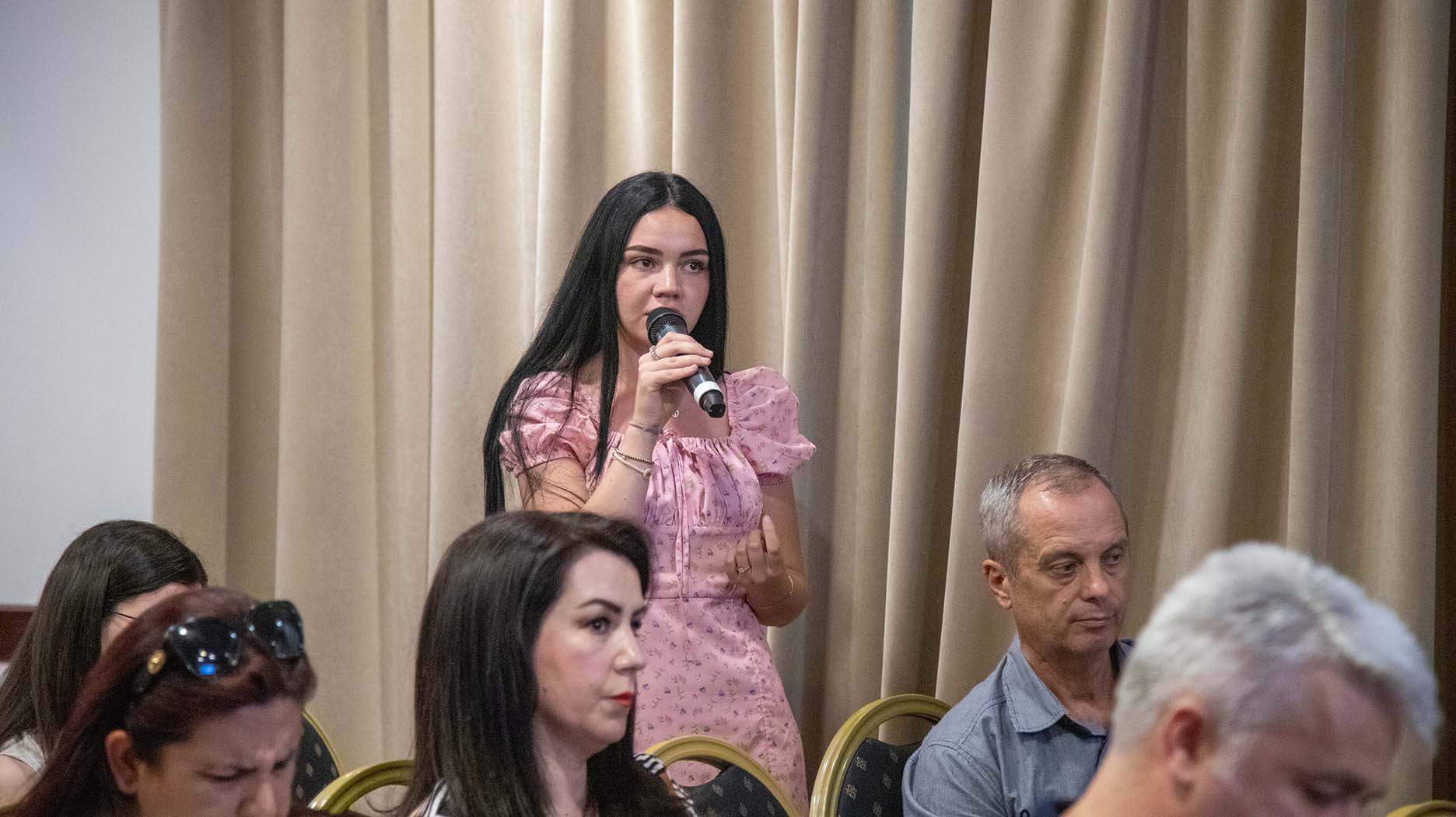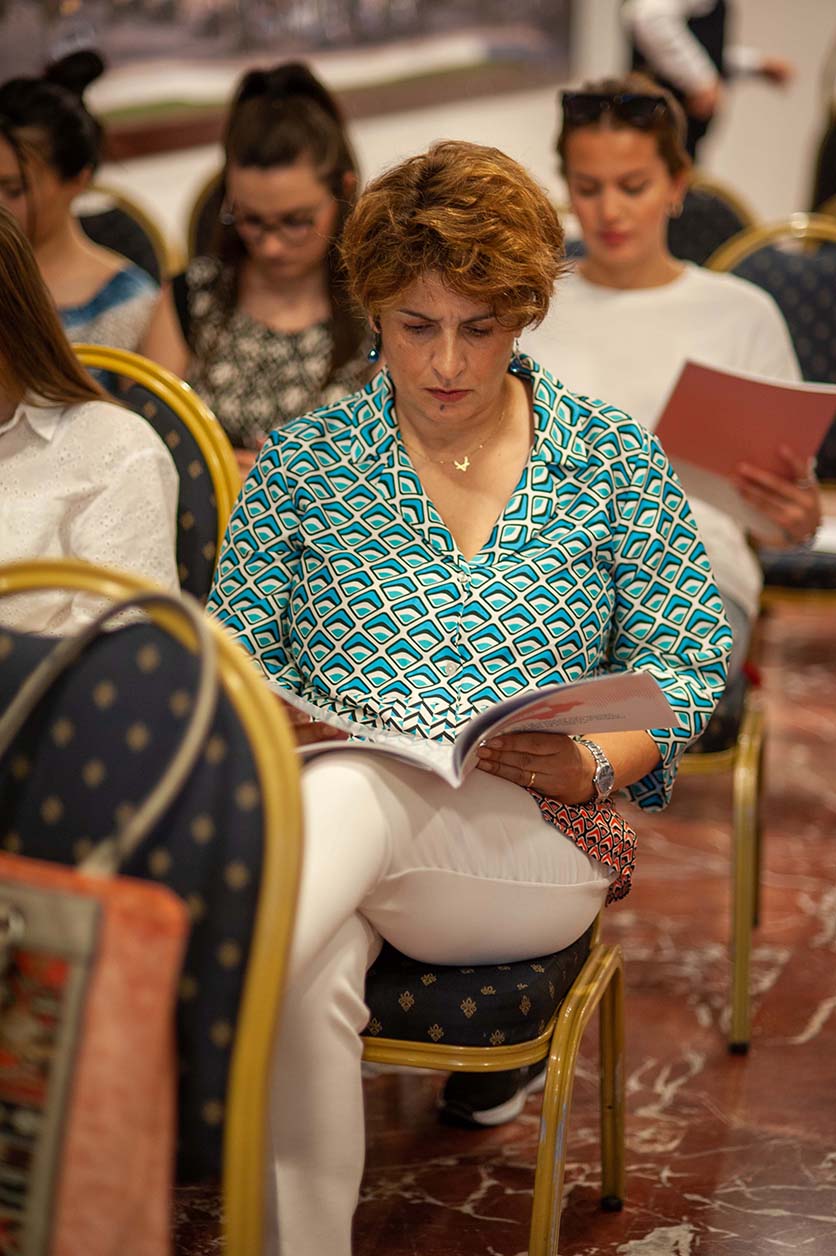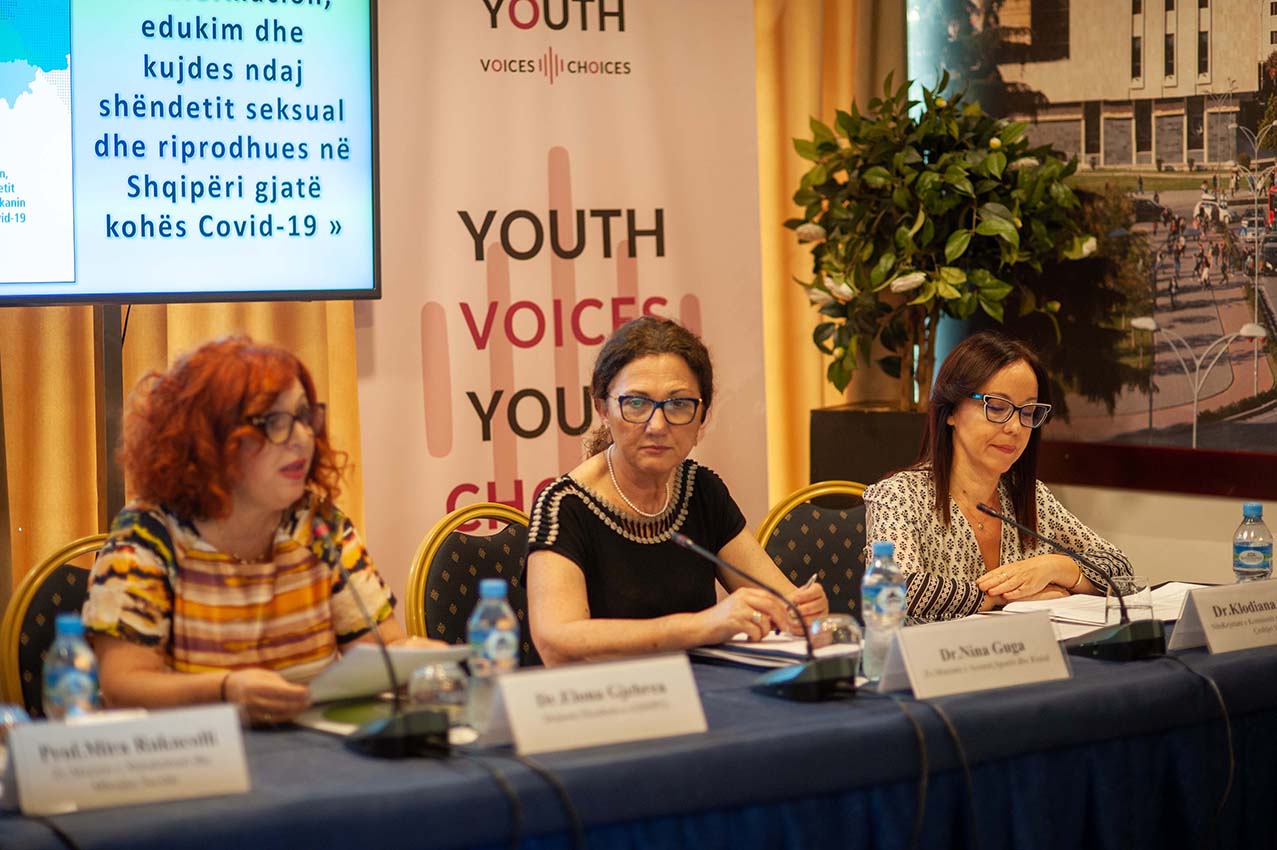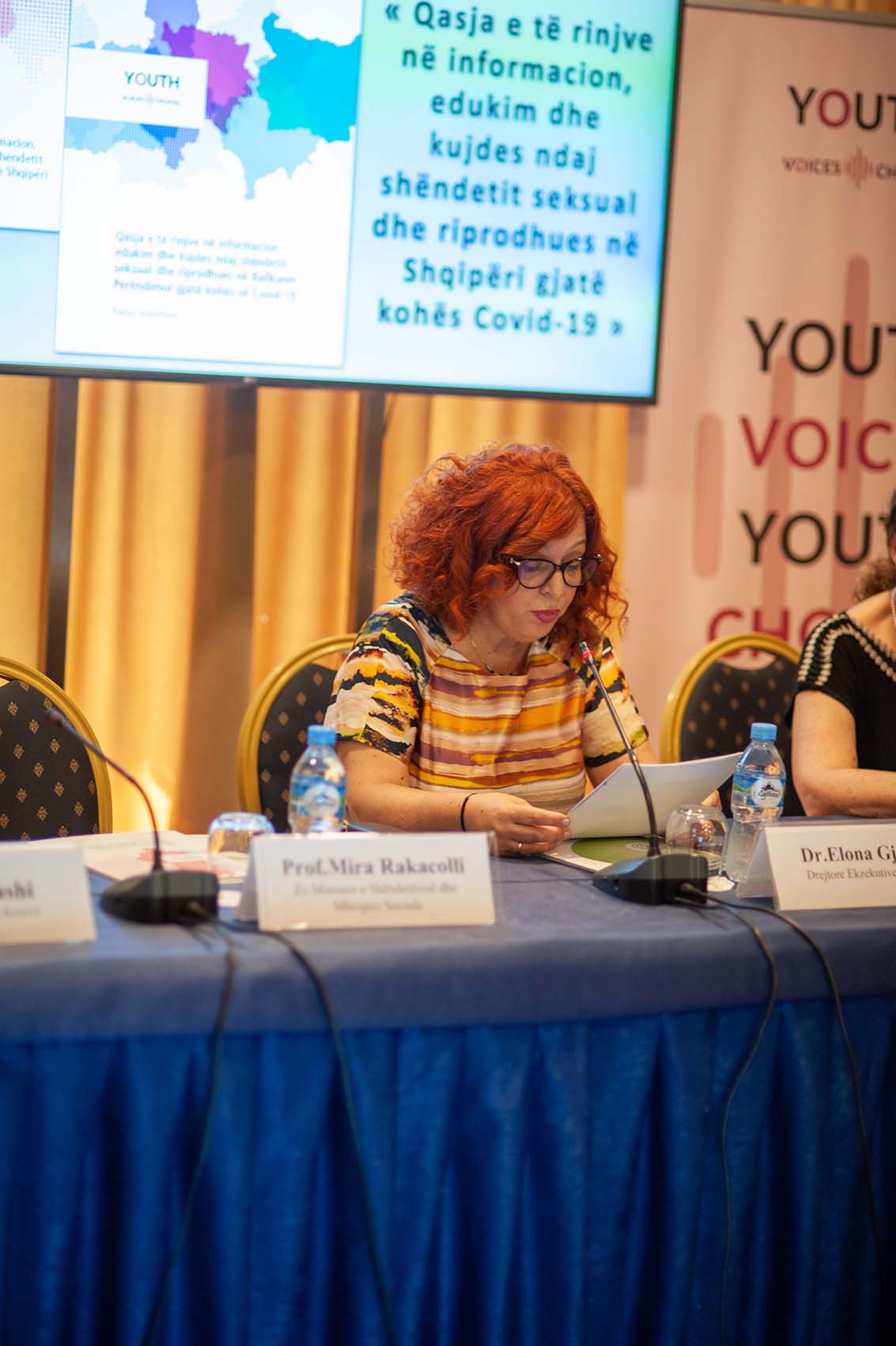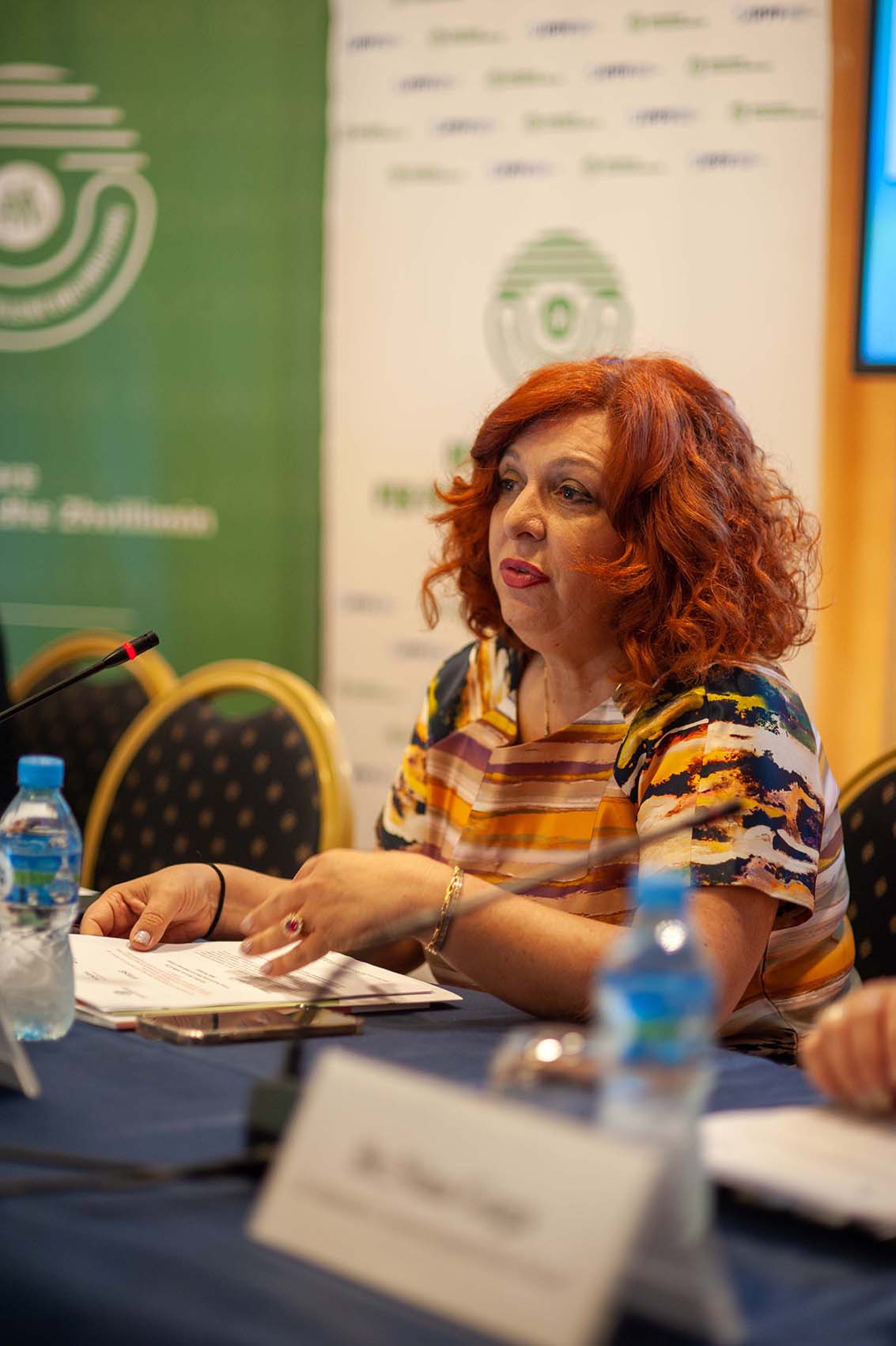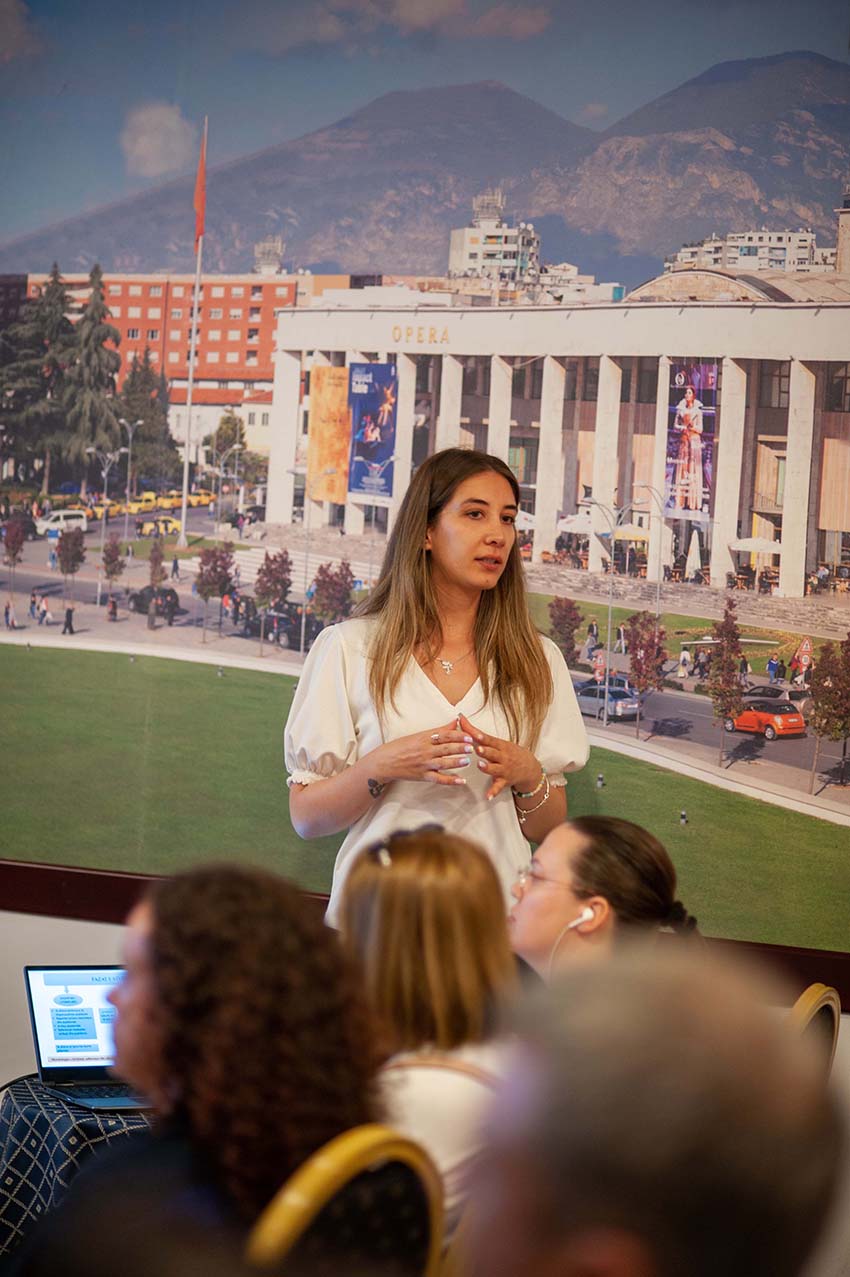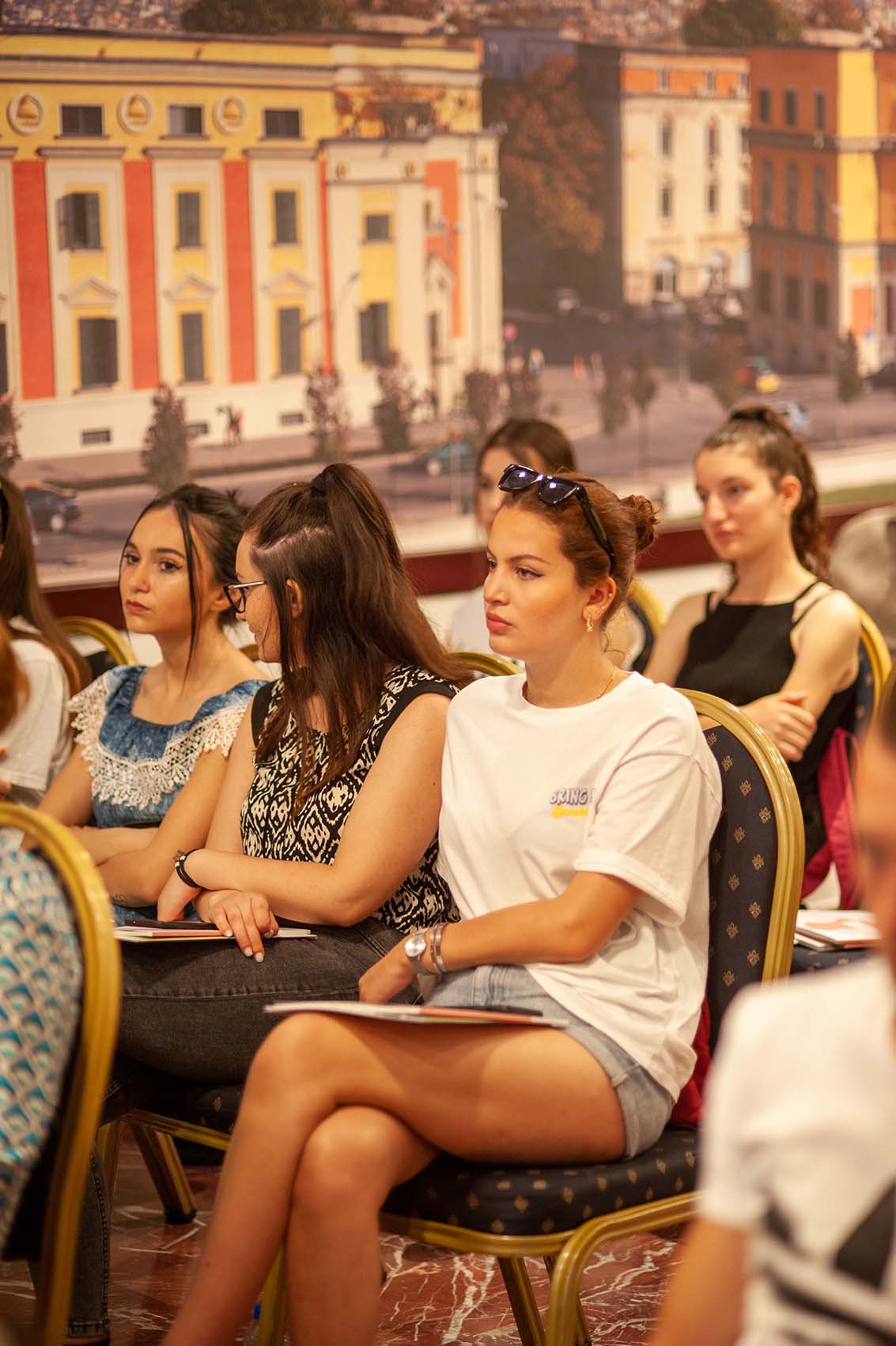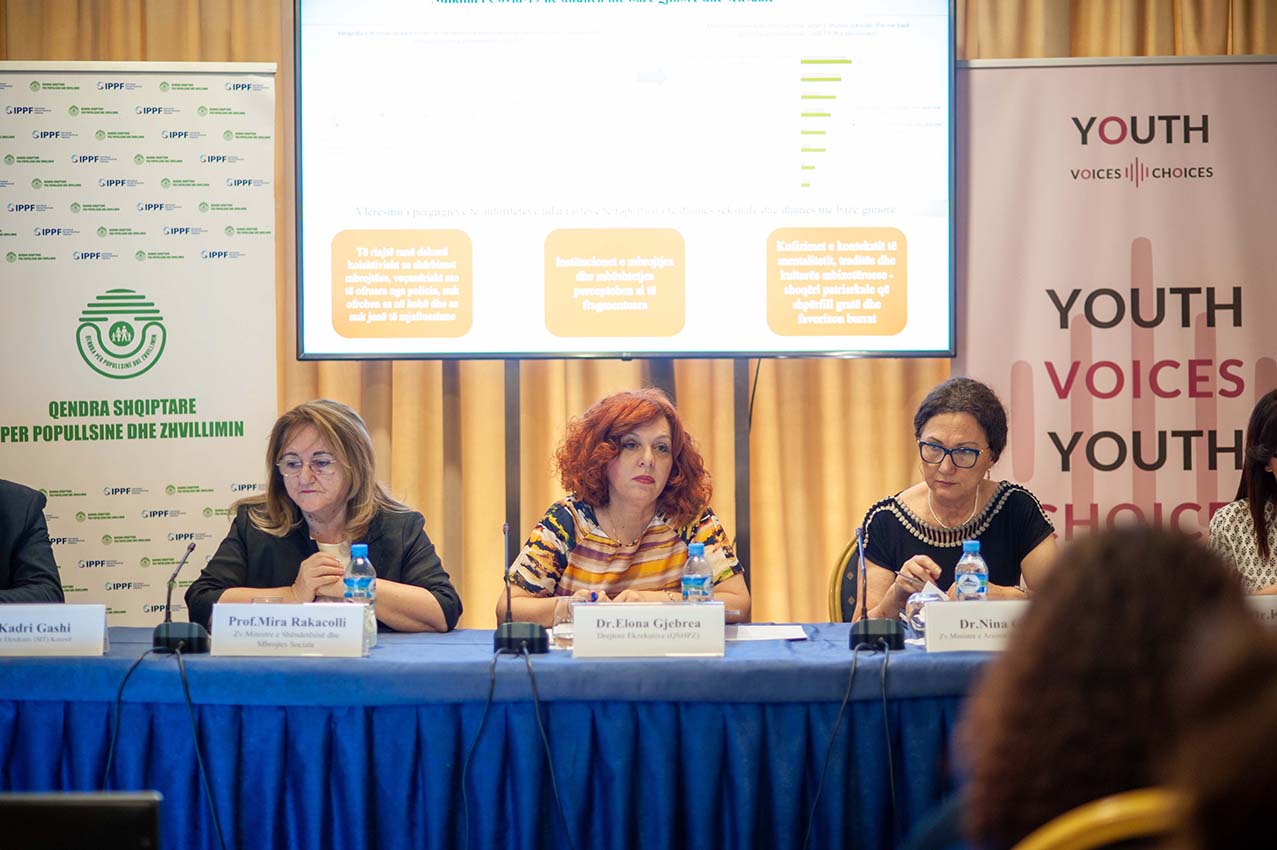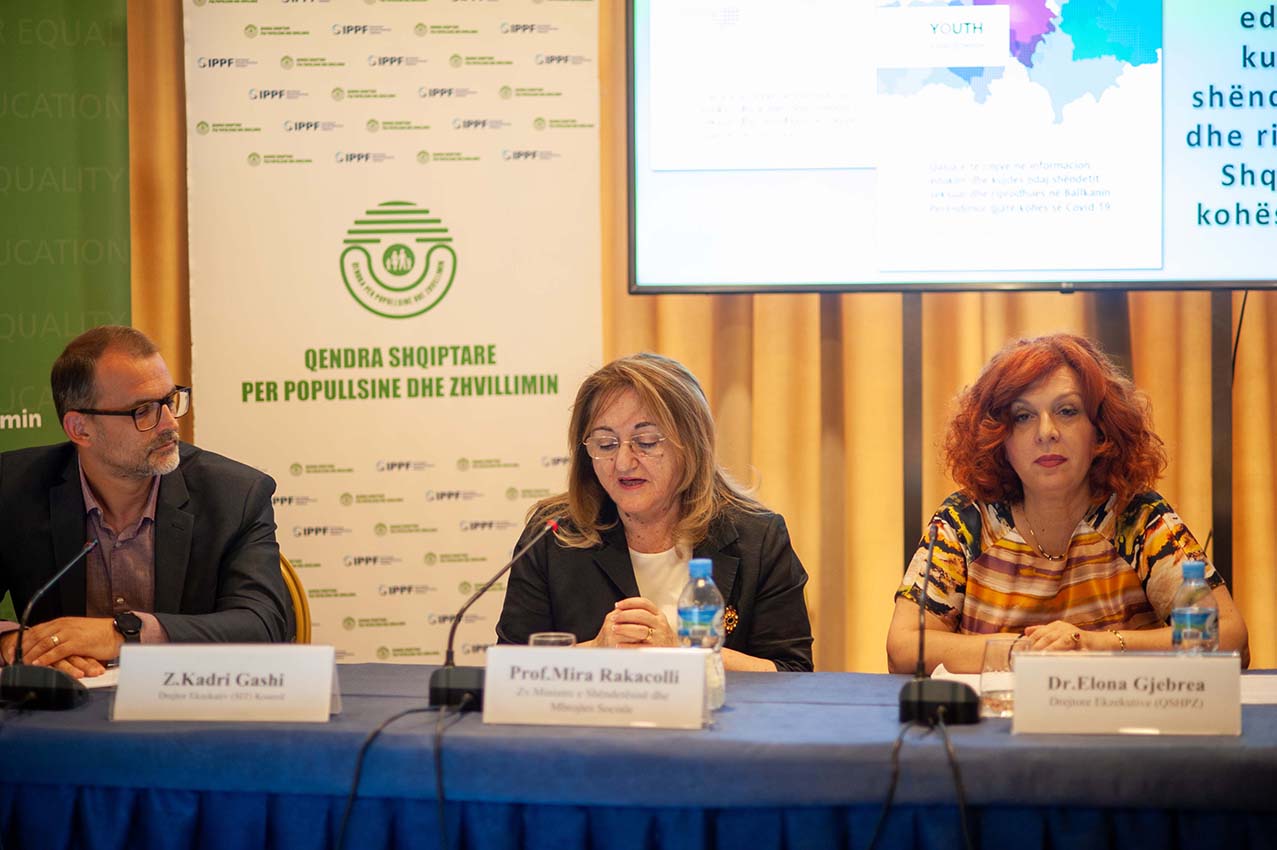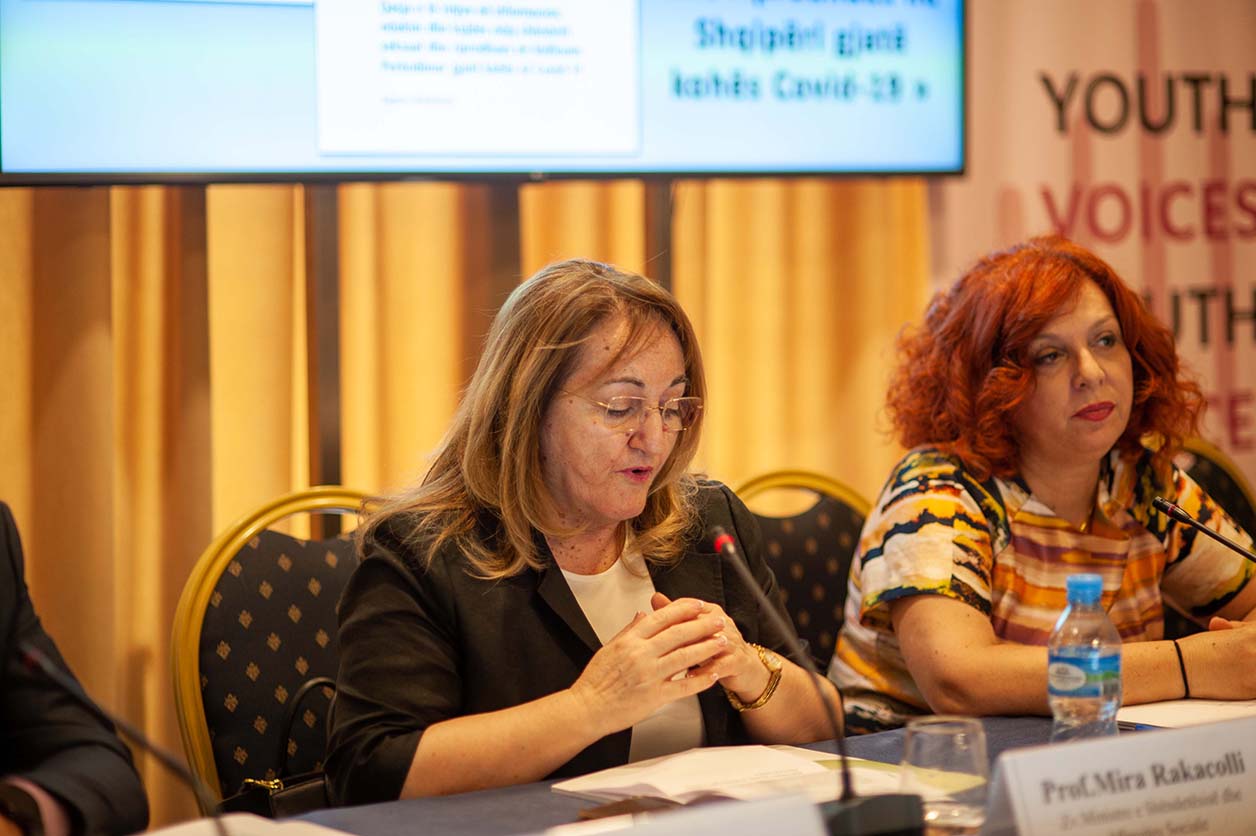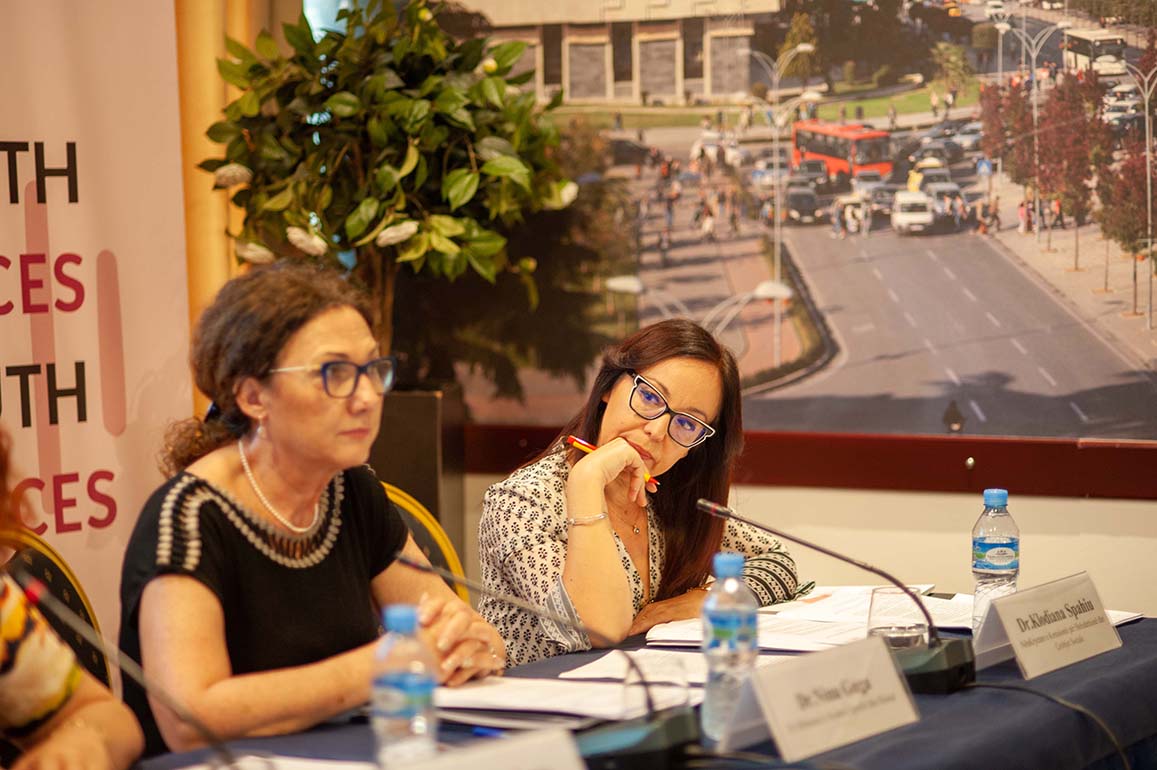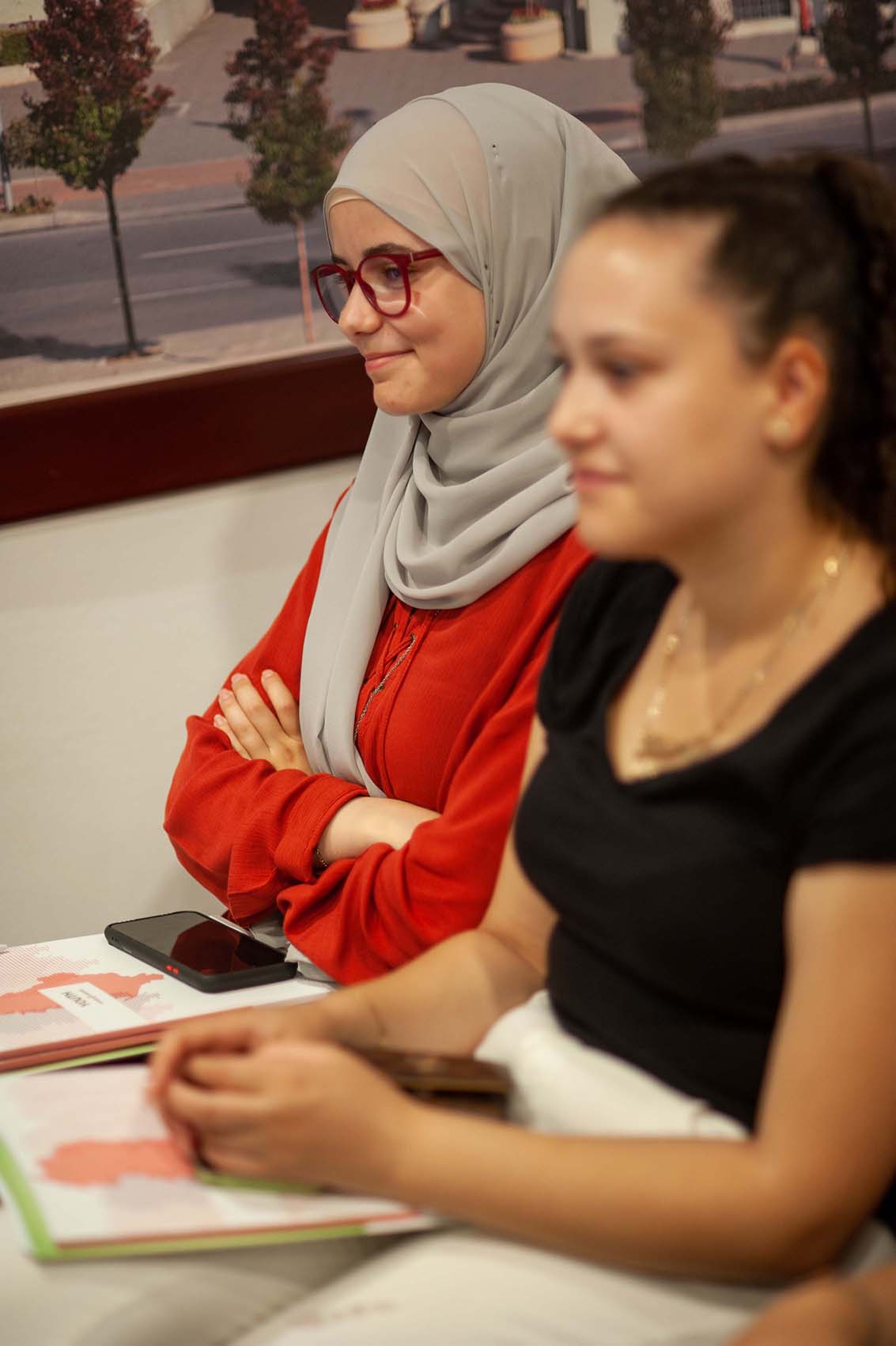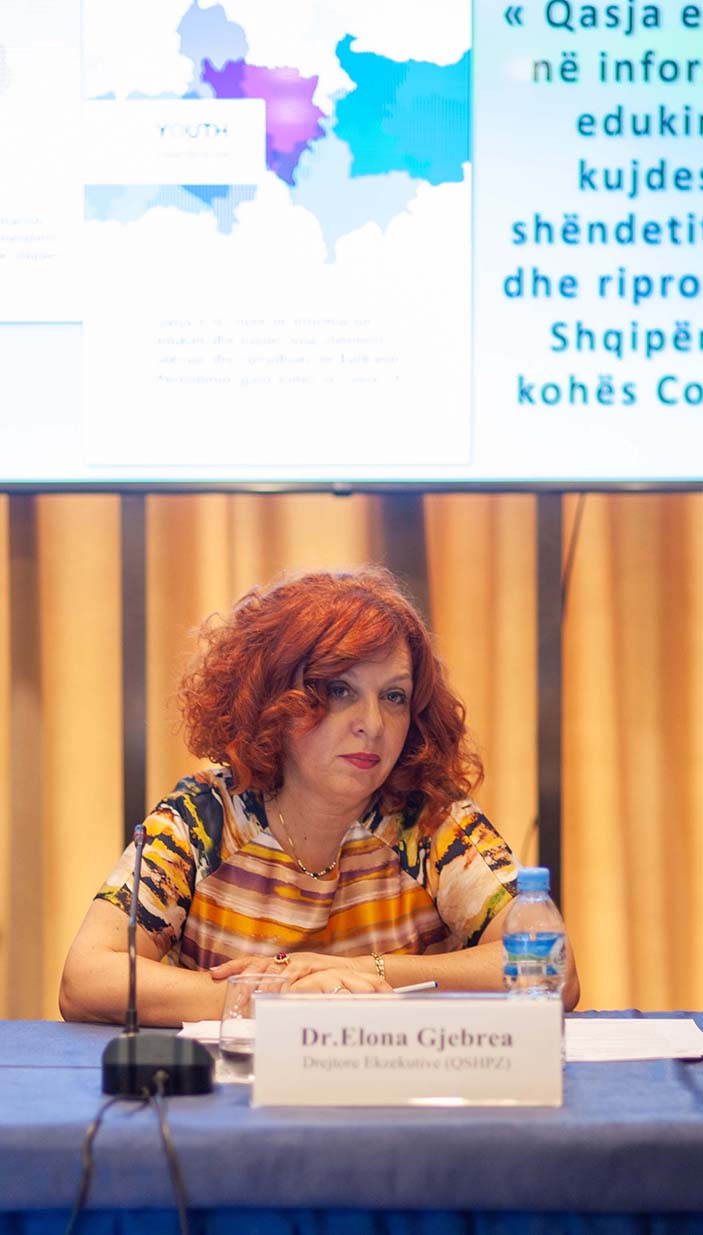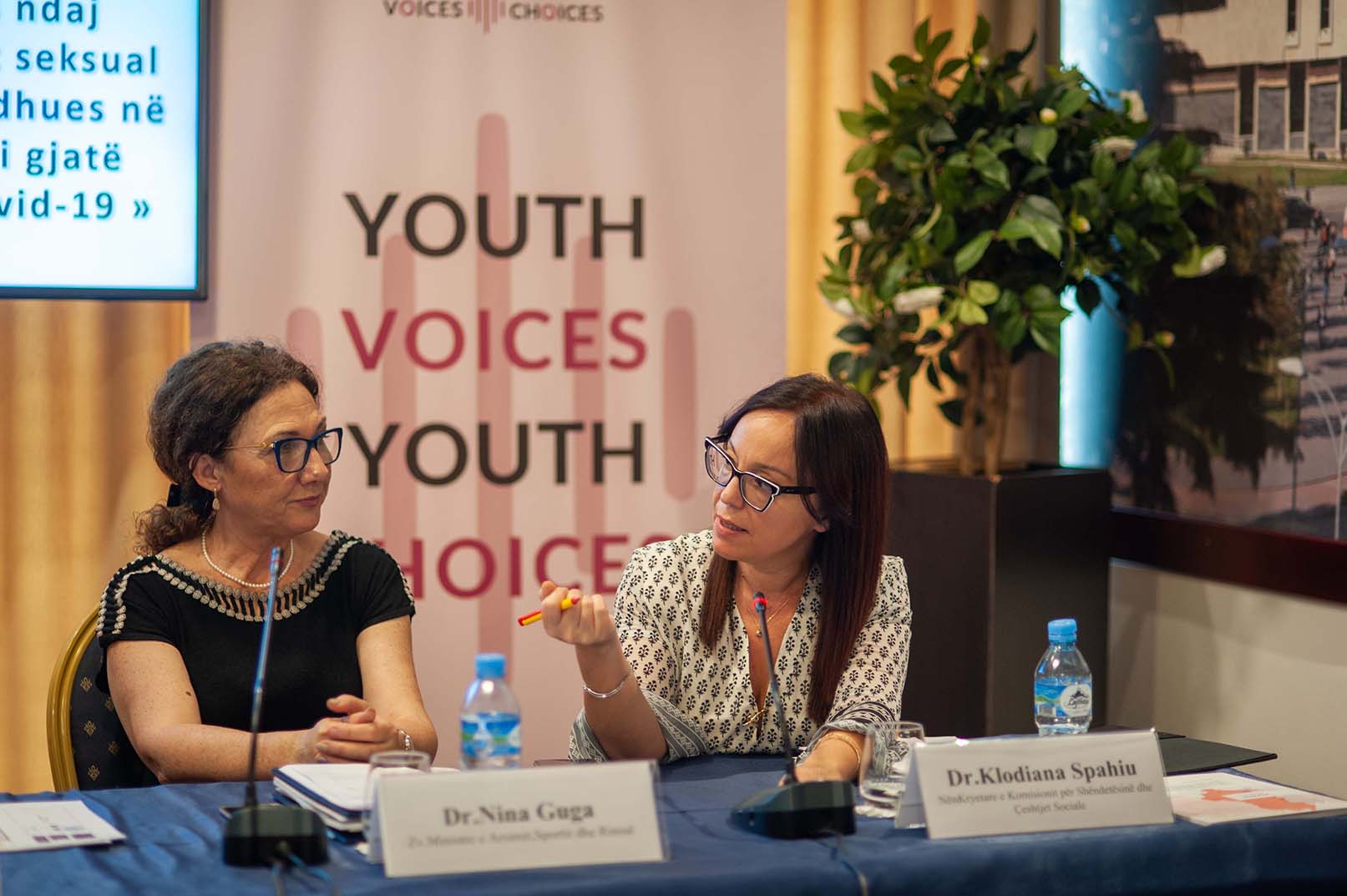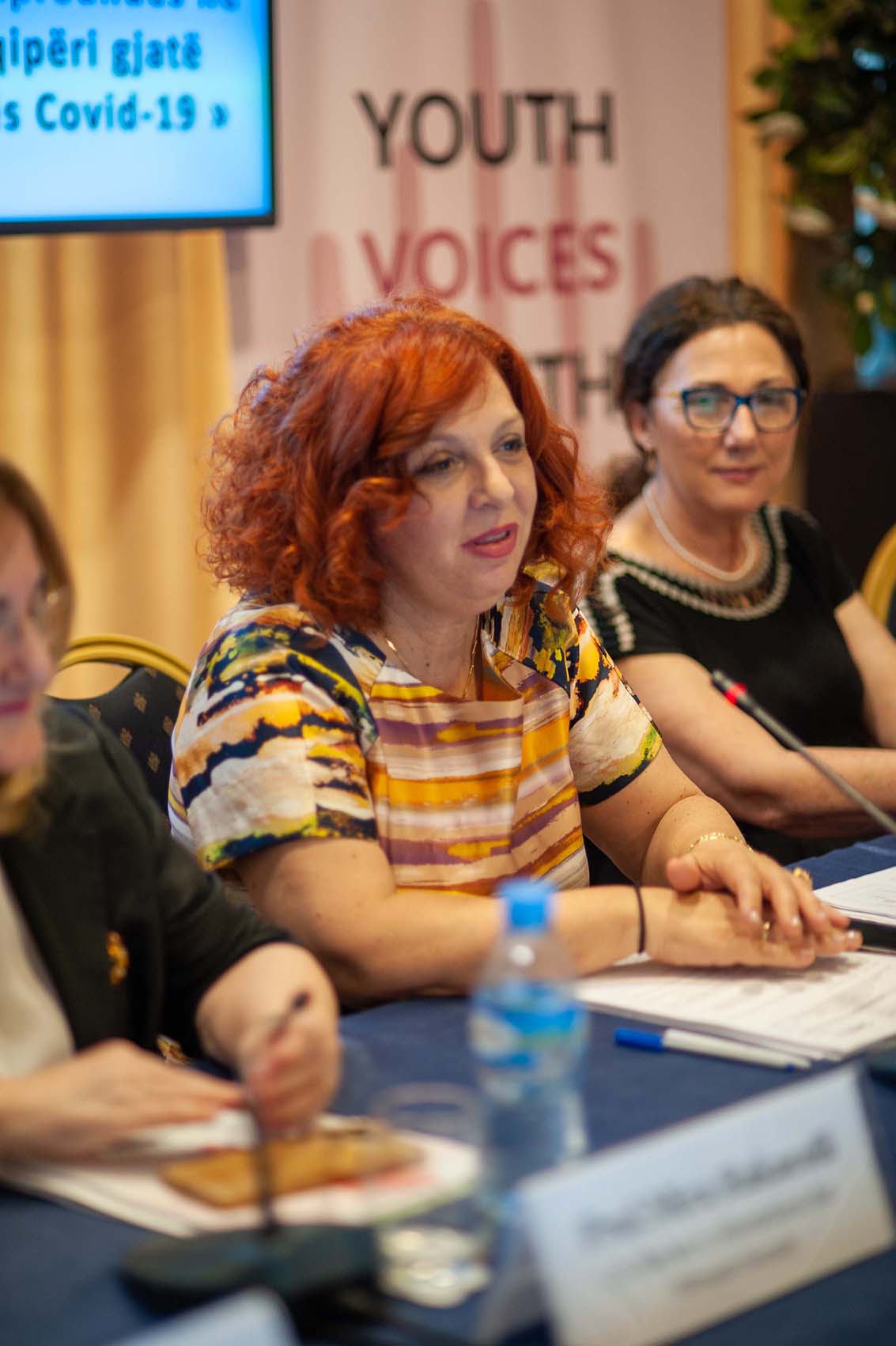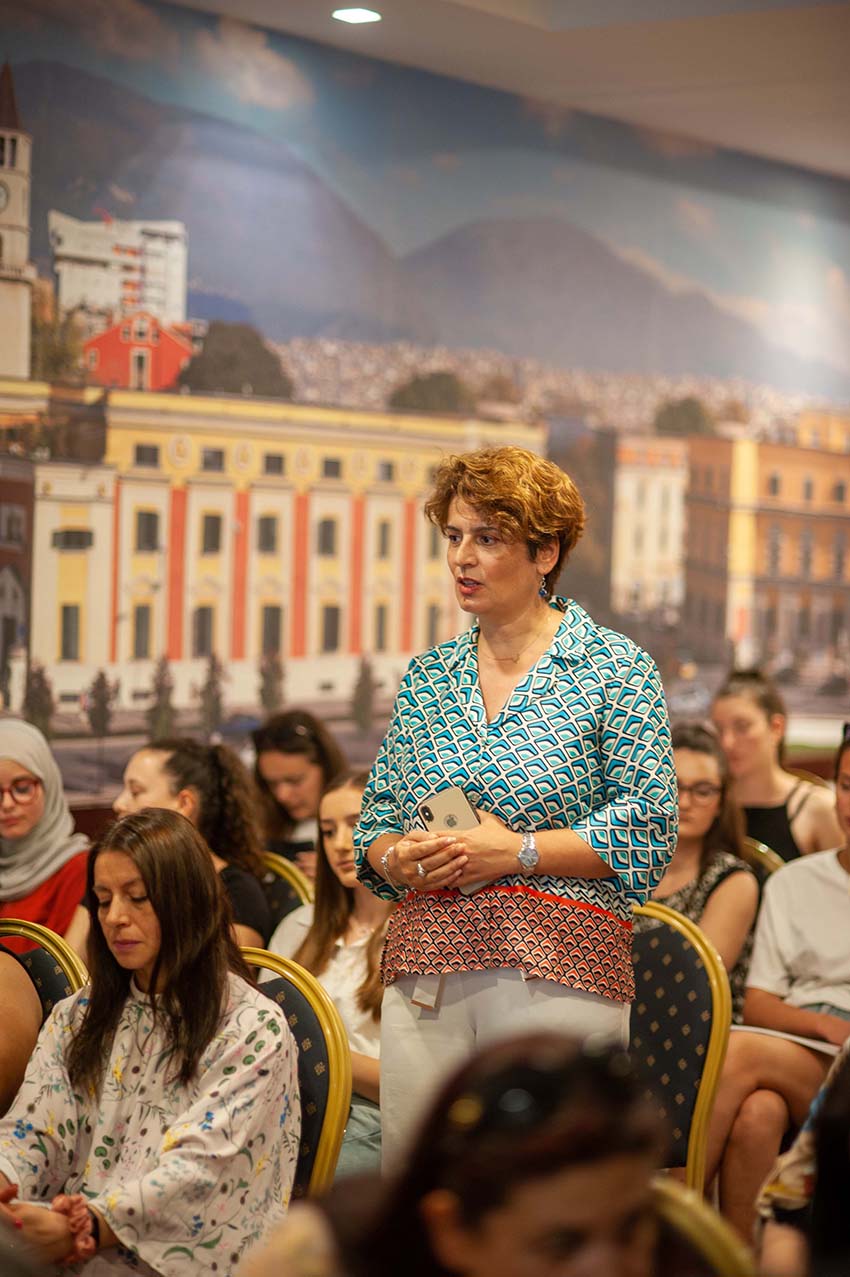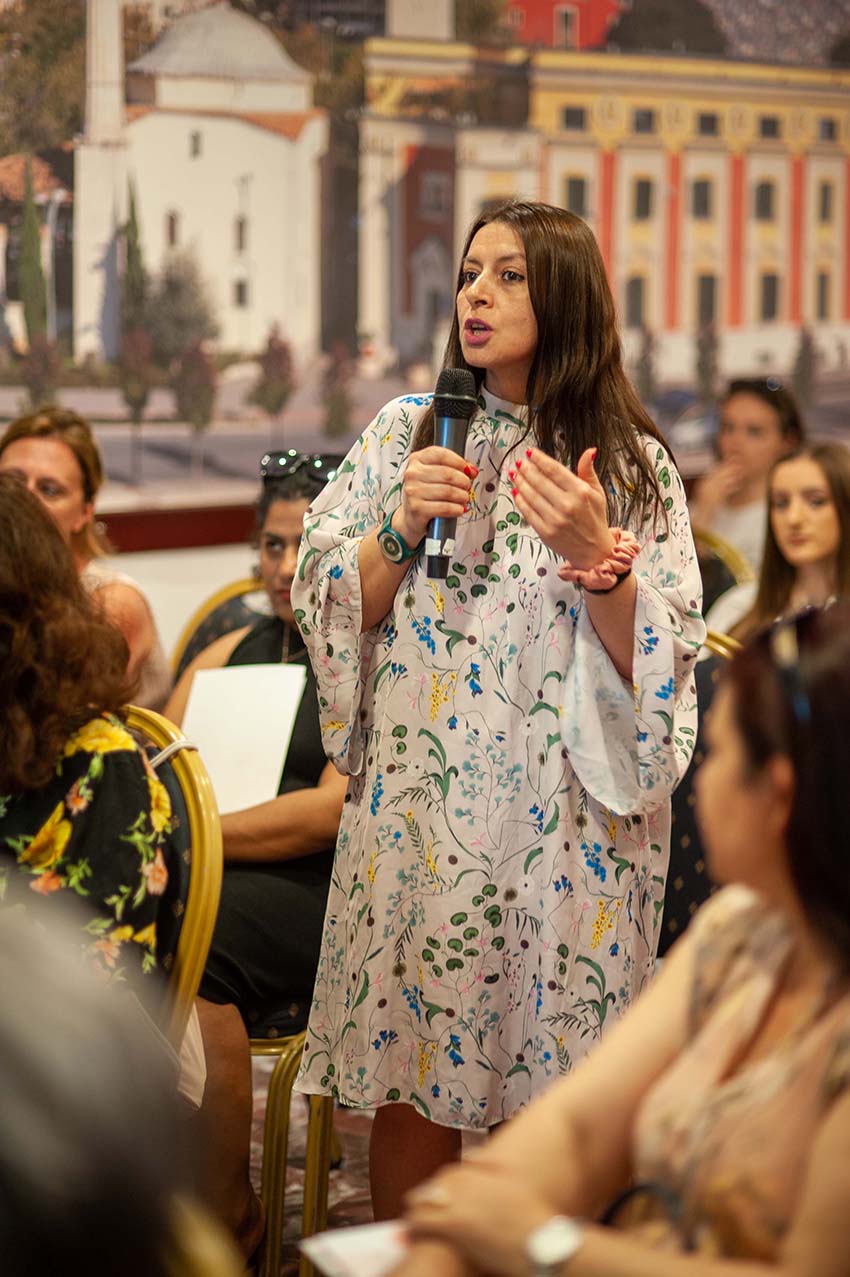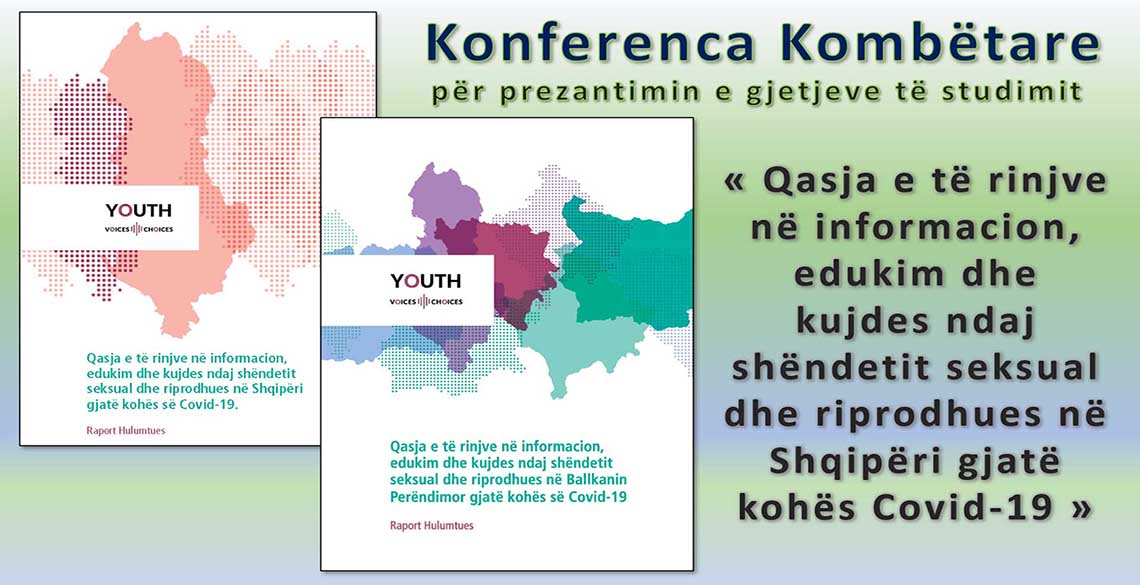ACPD National Conference: More Work on Youth SRH Policies, Activities and Engagement
On June 7, the Albanian Center for Population and Development (ACPD) held a National Conference to present the findings of the regional study “Young People’s Access to Sexual and Reproductive Health Information, Education and Care in Albania During Covid Time”.
This study is part of the project “Youth Voice, Youth Choice” supported by Merck for Mothers, regionally coordinated by the International Federation of Family Planning, European Network (IPPF EN) and implemented in 5 Balkan countries (Albania, Kosovo, Northern Macedonia, Bosnia and Herzegovina and Bulgaria).
The conference aimed to share the findings of the study on access to services and information and the role of integrated digital services, with a focus on communities living in remote areas and disadvantaged social conditions, sharing recommendations and good practices. Attendance to this conference was significant with over 50 guests from government institutions, civil society organizations, academia, experts in the field of sexual and reproductive health, international partners and young people.
The Conference panel, which was moderated by Dr. Elona Gjebrea, Executive Director of ACPD, were composed of top representatives of government ministries and institutions, including Prof. Mira Rakacolli, Deputy Minister of Health and Social Protection, Dr. Nina Guga, Deputy Minister of Education and Sports, Dr. Klodiana Spahiu, Deputy Chair of the Parliamentary Committee of Health and Social Affairs, and Mr. Kadri Gashi, Executive Director of partner organization SIT from Kosovo.
In her speech Prof. Rakacolli highlighted the role and work done by the Ministry of Health during the Covid-19 pandemic. She mentioned the national strategies that have been approved or will be adopted soon, such as the National Strategy for Reproductive Health, pointing out that unlike the previous strategy the new one is more comprehensive, where both genders, men/boys and women/girls are equally involved and where vulnerable groups also play an important role in it. She also stated that the basic package of healthcare includes the provision of sexual and reproductive health services. Among other things, in terms of prevention, Prof. Rakacolli stressed the inclusion of the free vaccination program for HPV vaccine for girls under 13 years of age, which is expected to begin soon.
Dr. Guga focused on enabling comprehensive sexuality education in the pre-university education, and the essential role that teachers played in this endeavor during the Covid-19 pandemic, given the fact that they also played the role of a psychologist.
Dr. Klodiana Spahiu, as Vice-Chairwoman of the Parliamentary Committee of Health and Social Affairs, emphasized the inter-institutional cooperation, collaboration with community centers and local self-government unit. Dr. Spahiu pointed out that the new strategies will help a lot in this regard. In addition, in the capacity of a Member of Parliament representing the region of Durres, Dr. Spahiu emphasized the continuation of delivery of information to the community with a particular focus on young people.
Mr. Gashi, CIT Executive Director, thanked the ACPD as a partner. He pointed out that several years of experience working with ACPD has helped their organization in capacity building. In his speech, Mr. Gashi shared some good practices where he stressed that the situation of comprehensive sexuality education for young people is the same for Kosovo, while congratulating Albania on the progress that has been made in adopting strategies and laws on sexual and reproductive health, which is still an ongoing battle in neighboring Kosovo.
After sharing experiences, current situation and suggestions of state representatives to address the field of sexual and reproductive health with all its components, time was devoted to the audience / participants for discussions, suggestions and recommendations. Dr. Gjebrea highlighted the role of the media as a key pillar for communicating these topics and conveying them accurately and truthfully to the audience.
To share some practices in terms of media, the floor was given to journalist Valbona Sulçe who focused on the information channels used today by young people and the reliability of the information shared with them as well as empowering the media to publish topics that interest teenagers, taking into account the few programs that address this topic. Also, a special emphasis was placed on the presence of stigma to communicate with young people at school on these topics or among parents to openly talk with their children. To this end, this report should serve as an incentive for all journalists.
Other suggestions given by the participants included:
- Continue work to address the recommendations drawn from the study;
- Give importance to health mediators and their role, mainly for Roma and Egyptian target groups;
- Refresh the reproductive health group to advance the work in this direction;
- Strengthen the partnership among all stakeholders that work in the sexual and reproductive health;
- Extend cooperation of the public sector with the private sector, NGOs, etc., to complement the offers available to youth;
- Invest in and work hard to extend comprehensive sexuality education to out-of-school settings;
- Prepare structures to provide sexual and reproductive health services in times of crisis, especially after the crises we went through with the earthquake, pandemic, etc.;
- Intensify media campaigns focusing on sexual and reproductive health;
- Include the concept of parenting clubs;
- Ensure the presence and participation of multidisciplinary structures in the provision of sexual and reproductive healthcare services.
In conclusion, some final adjustments were made by the representatives of the institutions, including: enforcement of regulations in school premises; improvement of competencies of all employees; enhanced cooperation of the Parliament with civil society, already started and where anyone can join to intensify this cooperation; new strategies being worked on to include special modules that will help young people with disabilities.
At the end of the meeting, it was emphasized that similar roundtables will be held in the future, including other key stakeholders, such as the Minister of State for Youth and Children, the National Youth Agency, etc.
